

How to Write a Compelling Pharmacy School Personal Statement
Written by Kelly Tomory
July 12, 2022

If you’re applying to any higher education program, you’re most likely going to run into something called a “personal statement”. Pharmacy school is no exception, and learning how to write a compelling and unique personal statement is a key part in getting accepted to school. Read on to find out how to write one that stands out!
What is a Personal Statement?
A personal statement serves as a way to highlight your skills, interests and experiences. Personal statements tend to be somewhat autobiographical, but it is not just a lengthy personal essay of your entire life story.
Personal statements are also not a regurgitation of all the information you’ve already included in your application and cover letter. Think of your personal statement as more of a narrative, but still keep it informative.
In writing a personal statement, you’re aiming to give the school or program you’re applying for a snapshot of who you are and why you want to be considered for whatever position. They are as much about how you write as what you write. Schools will receive hundreds of personal statements– make sure yours stands out!
What is the Difference Between a Personal Statement and a Cover Letter?
A cover letter generally serves as a means to sell yourself to a company or school. It introduces your resume and all your relevant school and employment history. A personal statement, however, is meant to be more creative and introduce the school to you as a person in an engaging format.
While an application can come off as just a list of what you’ve done, a personal statement frames all your accomplishments in a way that connects your real-life influences with the dates and degrees on your application.
What is the Best Format for a Personal Statement for Pharmacy School?
Think of your personal statement as a narrative essay outlining how you got to where you are today, as well as where you want to go next. Within this story, relate back to pharmaceuticals and medicine and healthcare fields in an organic way. You’ve chosen this path for a reason, what are the steps that got you here?
What Questions Should I Answer in my Personal Statement?
Some helpful questions to aim to answer throughout your personal statement are:
✅ Why do I want to be a Pharmacist?: Think through the times where you have admired pharmaceuticals or where they have most impacted you. Or, think about when you fell in love with medicine and helped people through pharmaceuticals.
✅ What different pharmaceutical paths would I be interested in pursuing?: Are you interested in nuclear pharmacy? What about private pharmaceutical production? If you have a specific niche in mind for a career path, use this space to talk about your interest.
✅ What makes me an excellent and unique candidate for this program?: Have you taken any specialized courses that make you uniquely qualified for this program? Have you had any outstanding internships or positions within the healthcare world?
✅ What are my strengths?: Where do you excel? What specific strengths could you bring to the program and the team you work with? Use this space to highlight your gifts.
✅ Are there any gaps or inadequacies in my application? How can I explain them here?: If you have anything on your application that may confuse someone not familiar with your life circumstances, try to concisely explain it here. Admissions counselors want to be able to give you the best shot possible at being accepted, and sometimes this requires you being up-front about gaps or missing pieces to your work history.
What Should I Avoid in My Personal Statement?
❌ Don’t just repeat what you’ve said in your application. There’s a place for a more sterile, list-based amalgamation of your achievements, but your personal statement is not this place. Admissions staff will learn a lot more about you if you’re creative with your personal statement.
❌ Don’t steal someone else’s work. Plagiarism will disqualify you from admission to pharmacy programs, and it’s also just bad practice for life in general.
❌ Avoid cliches throughout your writing. It may have been a dark and stormy night when you were born, but that is neither relevant nor original. Find fresh ways to tell your story and engage your readers.
❌ Avoid grammar and spelling mistakes. These can be avoided through several rounds of revision
What Are Admissions Counselors Looking for in a Personal Statement?
What makes a good candidate may vary from program to program, but there are some general things that admissions counselors look for when reviewing personal statements from applicants:
- How have you grown over the years?
- Is your personal statement well-written? Does it show care, consideration and edits?
- Are you up for the challenge of Pharmacy school?
- Do you fit our program?
What Are the Steps to Form a Compelling Personal Statement?
The creative process for a piece like this may vary form applicant to applicant, but the general steps are as follows
1. Brainstorm
This step can be messy, and is generally the most customizable of the process. To start your brainstorming process, think about all the reasons you’re considering pharmacy school and why this program should consider you. This is also a good place to start thinking about what makes you stand out from other candidates, as well as beginning to organize your education and work history.
Since personal statements are more narrative than list-based, start to think about how pharmacists have influenced your life and family. Compelling stories from your own experiences will help admissions counselors see you have a full-bodied connection to the program and career field.
As part of your brainstorming, look at successful personal statements. Websites like Studential and ApplyToUni can give you a good idea of what spelled success for past applicants. Or, if you know anyone who went to pharmacy school already, you can ask them for their best tips.
2. Outline and Draft
How do you make sense of all the information you just brainstormed out? One of the best ways to sort through your thoughts is by looking for natural connections between events in your life. Be sure to highlight the aspects of your career and schooling that will make you stand out the most.
Make sure you’re outlining your statement in a way that makes the most sense for both your story and your reader. Linear outlines with clear progressions through your life story usually work best, but that’s not to say you can’t jump around in the story a bit, especially if pharmacology has played a lot of different roles throughout your life and you’re looking to highlight its effect on you over time.
There are different types of personal statements, generally prompted or unprompted, but they all tend to be between 400-1,000 words long.
Check your personal statement for basic grammatical and spelling mistakes, as well as making sure your tone is both professional and friendly. Make sure your organization makes sense. A good way to ensure this is to have someone else read it and suggest edits. The more sets of eyes you can have on your personal statement, the better chance you’ll have of submitting a flawless piece.
Running your personal statement through a program like Grammarly or Hemingway is another good way to weed out mistakes and make sure your statement is clear.
4. Final Revisions and Submission
Do some final checks of your personal statement. Try to read it as if you’re reading it for the first time, with no context as to your own story. An early start in the writing and drafting process is key for this step, so you can take a few days away from your statement before this final revision if necessary.
If your personal statement was one with a prompt, use this check to be sure you have answered all the questions as fully and uniquely as possible. This is another great place to ask for a second set of eyes to review your statement.
Finally, submit your personal statement with your application to pharmacy school. Be sure that you’ve submitted it before the deadline!
How Do I Close a Personal Statement?
In closing your personal statement, include one last push for yourself and why you’re a good fit for the program. Try to naturally conclude and wrap up all that you’ve said about yourself and your story. Be sure to highlight your interest in the program specifically and give a quick “thank you” for their consideration of your application.
What Now?
Now that you know how to write a great personal statement for pharmacy school, you should narrow down the schools you want to apply to. If you haven’t already, consider NEOMED’s College of Pharmacy ! Our program will prepare you to make an impact on those around you for the better, whether locally or globally. Graduates from our programs boast high NAPLEX test scores, excellent network connections and a deeper understanding of the communities they serve. Apply to NEOMED !
Want to learn more about pharmacy school at NEOMED? Our pharmacy program guide will help you determine if pharmacy school is the right path for you, and how NEOMED can help you begin your future.
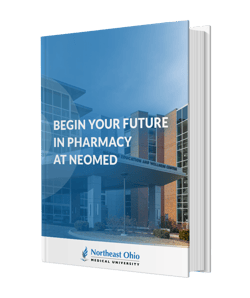
Access our eBook "Begin Your Future in Pharmacy at NEOMED" to learn more about what it takes to become a pharmacist.

About the author
Kelly tomory.
Assistant Director of Admission
More Articles
What do you learn in pharmacy school here are 6 surprising things, how hard is it to get into pharmacy school 3 key application tips, 4 tips for your pharmacy school interview.
- Advertise With Us

- Pharmaceutical Technology
- Clinical Pharmacy
- Pharmaceutical Microbiology
- Pharmacology
- Pharmaceutics
- Pharmacy Management
- Pharma Companies
- Pharmaceutical Machines
- Questions and Answers
- PHARMA MARKETPLACE
- Pharma Marketplace
Tips for Writing a Pharmacy School Personal Statement
Like in any other field of education, a pharmacy statement is a way of selling yourself to the admission tutors by showing them why you are a great pharmacy candidate. A personal statement is an opportunity to detail your skills, strengths, and career objectives in pharmacy. A personal pharmacy statement allows you a maximum of 4000 characters. It would be best to discuss why you are interested in pursuing a pharmacy degree in as few words as possible while ensuring you stand out from the crowd of prospective students.
- 1 Why is a personal statement important?
- 2 What makes a good personal statement?
- 3 Common mistakes to avoid
- 4 What to include in your statement
- 5.1 1. Preparation
- 5.2 2. Proper grammar
- 5.3 3. Proper structure
- 5.4 4. Connect with your reader
- 5.5 5. Include only Pharmacy relevant achievements
- 5.6 6. Avoid plagiarism
- 5.7 7. Avoid controversial topics
- 5.8 8. Proofread your work
Why is a personal statement important?
Statistics show that at least 50% of pharmacy school applications get rejected. These applications are not always denied because of poor scores. These students typically have scored just as good as their accepted counterparts. A personal statement is essential because it is what makes or breaks your application. This is because admission tutors are keen to welcome candidates who are genuinely passionate about and dedicated to the profession.
What makes a good personal statement?
An excellent personal statement uses evidence. Support all your claims. It would be best if you remembered that the admission tutors already know you are trying to convince them that you are a suitable match, as are all the contenders. Sure, you can go on and on about how willing you are to learn, but it would be more effective if you backed such claims with real-life examples.
Please use a personal statement writer service to get professional custom help in writing a good pharmacy personal statement. As a matter of fact, CustomWritings is considered to be one of the most reliable services on the market currently.
Common mistakes to avoid
It is important to remember that the perfect pharmacy personal statement does not have to follow a specific format. Remember that the admission tutors will only review your pharmacy statement for 10-30 minutes, no matter how much time you spend on it. This is not to say that you should rush through it but focus on capturing and maintaining the tutors’ interests. The tutors will review your statement from different angles, meaning you cannot afford to leave room for misinterpretation.
Please resist the urge to follow a predetermined formula you acquired online or from your friends, regardless of how they scored on it. You may easily be tempted to borrow ideas from successful pharmacy students, but this will compromise your authenticity. The admissions tutors have likely seen numerous personal statements so do not embarrass yourself by submitting a copied statement. Besides, you want to show how passionate you are about pharmacy, don’t you?
Read Also: How to Become a Chemistry Problem Solver
What to include in your statement
- Pick a specific pharmacy area you are most interested in and explain why you are interested in that area. Show that you are passionate about that subject (it helps if you are passionate about the area you choose to write about).
- Highlight your motivations for studying pharmacy. When did you realize you wanted to pursue pharmacy? Why? Are you able to support this with evidence from your life?
- Describe your hobbies and extracurricular activities (especially if they are related to pharmacy). The goal is to highlight the skills you have gained from these activities and how they will benefit you in your studies as a pharmacist.
- Include any work experience placements in related fields such as nursing or medicine. Talk about what you learned from these experiences.
- Talk about your traits and qualities that you feel make you a good pharmacy student.
- Please demonstrate that you are a good reader by talking about recent related reads and how they have shaped your thinking. Feel free to respectfully share any views and opinions, always remembering to support them with solid evidence.
How to Write a Good Pharmacy School Personal Statement
Below are a few tips to make sure your statement makes your application stand out and increase your chances of getting accepted into your program of choice:
1. Preparation
Preparation is key. Start early so that you do not end up rushing and producing a mediocre statement. Start planning early as you don’t want to be pressed for time.
2. Proper grammar
Use proper grammar and punctuation. Poor grammar makes for a wrong first impression. Polish your basics on grammar and avoid submitting a statement riddled with error.
3. Proper structure
Structure your statement correctly. Ensure the first statement captures your reader’s attention and then has a few supporting paragraphs. You have a tiny window of grabbing your reader’s attention, so use it wisely. Finally, have a conclusion that ties it all together.
4. Connect with your reader
Connect with your reader, even if it means sharing a few personal stories. The goal here is to make sure you communicate who you are. A personal statement is a monologue to the admission committee, and if they can connect with you, they will like you.
Show the admission tutors that you are aware of the challenges that await you and that you are committed regardless. Talk about how rewarding you think this path will be for you, your family, your community, your patients, and the pharmacy practice itself.
5. Include only Pharmacy relevant achievements
If you have lofty achievements outside the pharmaceutical field, do not include them in your statement. Include only pharmacy-related experiences.
6. Avoid plagiarism
Committee members can always see through plagiarized works, so avoid this at all costs. This will only destroy your credibility in the field.
7. Avoid controversial topics
The personal statement is not a discussion ground for questionable topics. Do not alleviate issues that disagree with the overall subject in question.
8. Proofread your work
Sometimes people miss tiny mistakes by not proofreading their work. Have friends and family check your work and act on the comments. Inadequate proofreading can be catastrophic, so ensure you correctly use your language before sending the statement to the admission committee.
As now you are well acquainted with the components of writing an impeccable pharmacy personal statement , you should have no trouble in getting admitted into Pharmacy school. Pharmacy school is about honor and prestige, and you need the best of luck in this noble endeavor.
Chemistry Problem Solver: How to Become One?
Understanding the Various Types of Hepatitis Virus

March 18, 2024

February 18, 2024

February 3, 2024
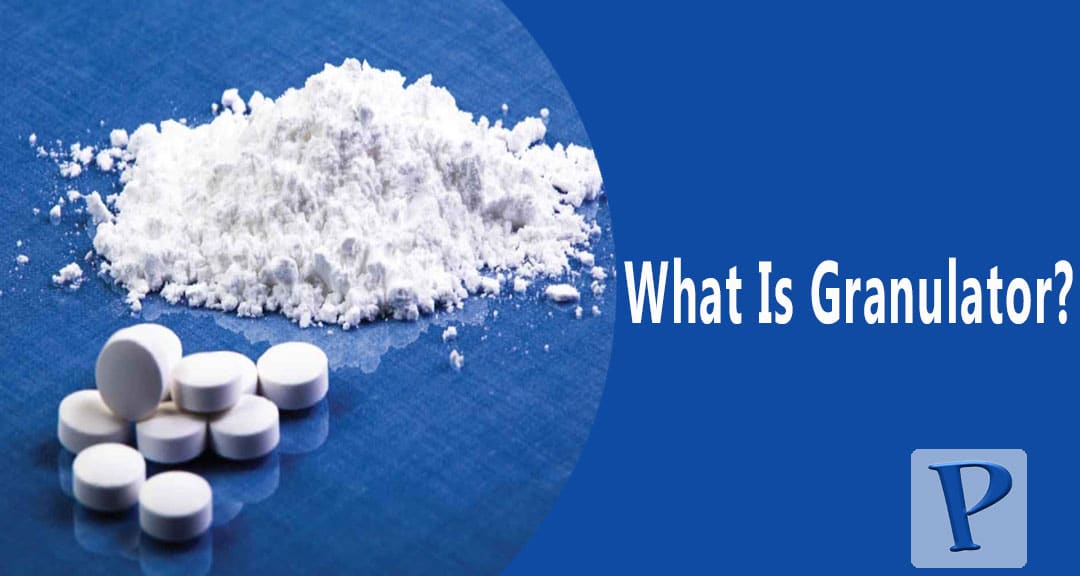
November 10, 2023
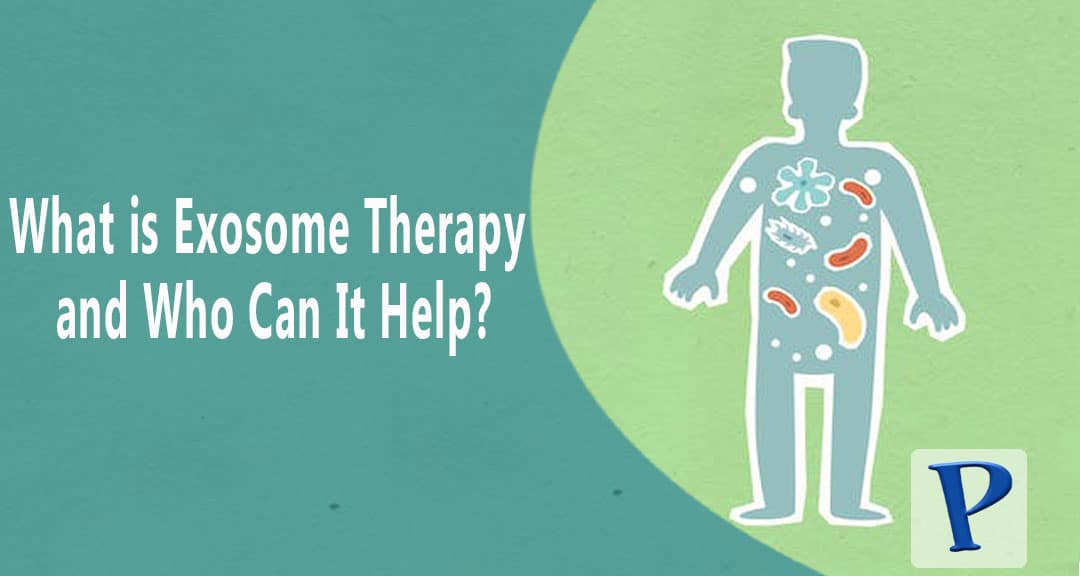
September 26, 2023
Thanks for Sharing the Great Post.
You are welcome. I am happy you found it useful.
I’m very excited to have found out this article, Keep on writing more and more. All Assignments Help
I love dis article
Leave a Reply Cancel reply
Your email address will not be published. Required fields are marked *
- Pneumatic Mixers
- 10 Foods and Drinks to Avoid If You Have Hypertension
- The Rise of Semaglutide: A New Era in Diabetes Management
- What Flexible Heaters Are Used In Respiratory Therapy
- Pharmaceutical Companies in Nigeria
- First Pass Effect Explained
- Nations and Their Contributions to the Growth of Pharmacy
- Colloid Mills
- What are drug delivery systems?
- How to Reconstitute Oral Suspensions [Step-by-Step Guide]
Regulations, Guidelines and Clinical Trials
Important links, submit articles.
- Terms and Conditions
- Privacy Policy

- Applying to Uni
- Apprenticeships
- Health & Relationships
- Money & Finance
Personal Statements
- Postgraduate
- U.S Universities
University Interviews
- Vocational Qualifications
- Accommodation
- Budgeting, Money & Finance
- Health & Relationships
- Jobs & Careers
- Socialising
Studying Abroad
- Studying & Revision
- Technology
- University & College Admissions
Guide to GCSE Results Day
Finding a job after school or college
Retaking GCSEs
In this section
Choosing GCSE Subjects
Post-GCSE Options
GCSE Work Experience
GCSE Revision Tips
Why take an Apprenticeship?
Applying for an Apprenticeship
Apprenticeships Interviews
Apprenticeship Wage
Engineering Apprenticeships
What is an Apprenticeship?
Choosing an Apprenticeship
Real Life Apprentices
Degree Apprenticeships
Higher Apprenticeships
A Level Results Day 2024
AS Levels 2024
Clearing Guide 2024
Applying to University
SQA Results Day Guide 2024
BTEC Results Day Guide
Vocational Qualifications Guide
Sixth Form or College
International Baccalaureate
Post 18 options
Finding a Job
Should I take a Gap Year?
Travel Planning
Volunteering
Gap Year Guide
Gap Year Blogs
Applying to Oxbridge
Applying to US Universities
Choosing a Degree
Choosing a University or College
Personal Statement Editing and Review Service
Guide to Freshers' Week
Student Guides
Student Cooking
Student Blogs
- Top Rated Personal Statements
Personal Statement Examples
Writing Your Personal Statement
- Postgraduate Personal Statements
- International Student Personal Statements
- Gap Year Personal Statements
Personal Statement Length Checker
Personal Statement Examples By University
Personal Statement Changes 2025
- Personal Statement Template
Job Interviews
Types of Postgraduate Course
Writing a Postgraduate Personal Statement
Postgraduate Funding
Postgraduate Study
Internships
Choosing A College
Ivy League Universities
Common App Essay Examples
Universal College Application Guide
How To Write A College Admissions Essay
College Rankings
Admissions Tests
Fees & Funding
Scholarships
Budgeting For College
Online Degree
Platinum Express Editing and Review Service
Gold Editing and Review Service
Silver Express Editing and Review Service
UCAS Personal Statement Editing and Review Service
Oxbridge Personal Statement Editing and Review Service
Postgraduate Personal Statement Editing and Review Service
You are here
- Mature Student Personal Statements
- Personal Statements By University
- Accountancy and Finance Personal Statements
- Actuarial Science Personal Statements
- American Studies Personal Statements
- Anthropology Personal Statements
- Archaeology Personal Statements
- Architecture Personal Statements
- Art and Design Personal Statements
- Biochemistry Personal Statements
- Bioengineering Personal Statements
- Biology Personal Statements
- Biomedical Science Personal Statements
- Biotechnology Personal Statements
- Business Management Personal Statement Examples
- Business Personal Statements
- Catering and Food Personal Statements
- Chemistry Personal Statements
- Classics Personal Statements
- Computer Science Personal Statements
- Computing and IT Personal Statements
- Criminology Personal Statements
- Dance Personal Statements
- Dentistry Personal Statements
- Design Personal Statements
- Dietetics Personal Statements
- Drama Personal Statements
- Economics Personal Statement Examples
- Education Personal Statements
- Engineering Personal Statement Examples
- English Personal Statements
- Environment Personal Statements
- Environmental Science Personal Statements
- Event Management Personal Statements
- Fashion Personal Statements
- Film Personal Statements
- Finance Personal Statements
- Forensic Science Personal Statements
- Geography Personal Statements
- Geology Personal Statements
- Health Sciences Personal Statements
- History Personal Statements
- History of Art Personal Statements
- Hotel Management Personal Statements
- International Relations Personal Statements
- International Studies Personal Statements
- Islamic Studies Personal Statements
- Japanese Studies Personal Statements
- Journalism Personal Statements
- Land Economy Personal Statements
- Languages Personal Statements
- Law Personal Statement Examples
- Linguistics Personal Statements
- Management Personal Statements
- Marketing Personal Statements
- Mathematics Personal Statements
- Media Personal Statements
- Medicine Personal Statement Examples
- Midwifery Personal Statements
- Music Personal Statements
- Music Technology Personal Statements
- Natural Sciences Personal Statements
- Neuroscience Personal Statements
- Nursing Personal Statements
- Occupational Therapy Personal Statements
- Osteopathy Personal Statements
- Oxbridge Personal Statements
- Pharmacy Personal Statements
- Philosophy Personal Statements
- Photography Personal Statements
- Physics Personal Statements
- Physiology Personal Statements
- Physiotherapy Personal Statements
- Politics Personal Statements
- Psychology Personal Statement Examples
- Radiography Personal Statements
- Religious Studies Personal Statements
- Social Work Personal Statements
- Sociology Personal Statements
- Sports & Leisure Personal Statements
- Sports Science Personal Statements
- Surveying Personal Statements
- Teacher Training Personal Statements
- Theology Personal Statements
- Travel and Tourism Personal Statements
- Urban Planning Personal Statements
- Veterinary Science Personal Statements
- Zoology Personal Statements
- Personal Statement Editing Service
- Personal Statement Writing Guide
- Submit Your Personal Statement
- Personal Statement Questions 2025
- Personal Statement Changes 2024
Pharmacy Personal Statement Examples
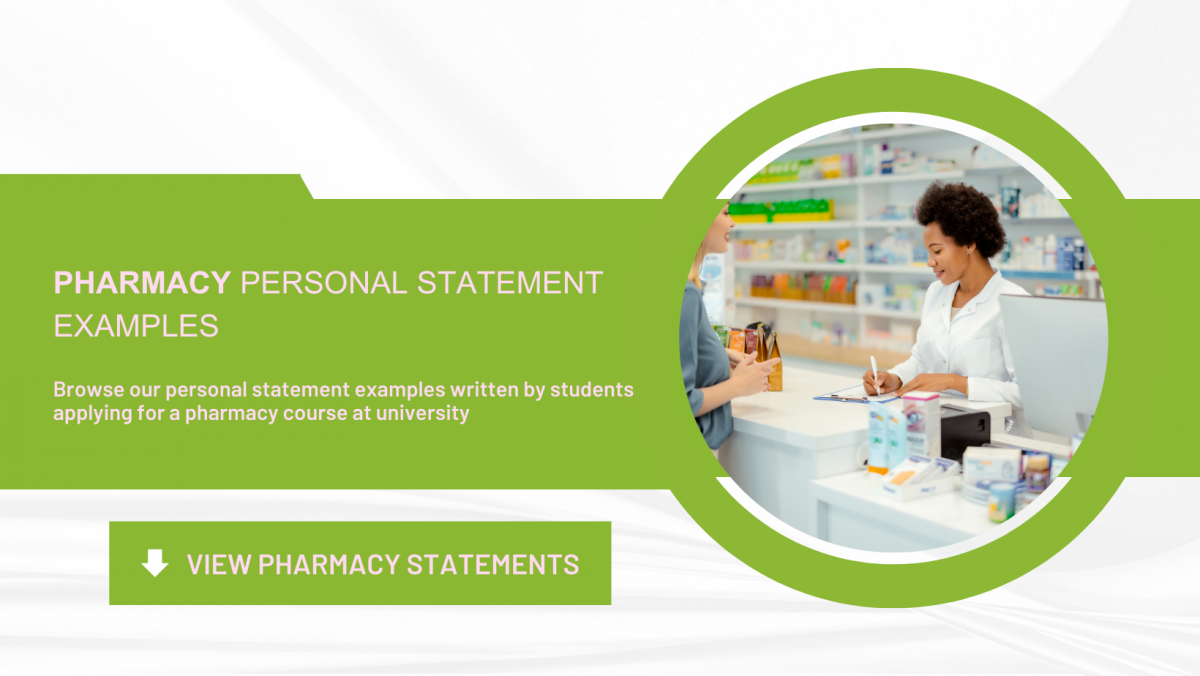
What is a pharmacy personal statement?
Writing a personal statement for pharmacy is a chance to sell yourself to the admissions tutors and show them why you would make a great phramacy candidate.
It’s a place to describe your skills and strengths, as well as your career plans.
You are allowed up to 4,000 characters to explain why you are applying for a pharmacy degree, so you need to make sure your statement is as polished as possible to stand out from the crowd.
How do I write a good pharmacy personal statement?
Good pharmacy personal statements always use evidence to support their claims. You need to convince admissions tutors that you’re a good match for the programme, so if you claim to be committed or inquisitive, then use examples from your life to back it up.
To write a great pharmacy personal statement you need to start early, brainstorm some ideas, and then begin your first draft.
This will then need to be carefully revised and edited before asking family and friends for feedback. Incorporate their comments and suggestions, and see how it is improved before asking them to look at it again.
Read through our pharmacy personal statement examples to give you an idea of what a good pharmacy statement looks like.
Make sure you proofread your statement for grammar and spelling before sending it off, and if you feel you need a little extra help, take a look at our personal statement editing services .
What should I include in my pharmacy personal statement?
Many students choose to start their statement by picking a specific aspect of pharmacy and explaining why they enjoy it, e.g. drug chemistry, cardiovascular and renal systems, etc.
Admissions tutors want candidates that are as passionate about the subject as they are.
As well as your motivations for studying pharmacy, think about your hobbies and extracurricular activities too. What skills have you learned from these and how will these help you in your pharmacy degree?
Talk about any work experience placements you have completed, e.g. shadowing a doctor or nurse, or someone in a similar medical/clinical profession. What did you take away from this experience? Do you feel you have all the necessary personal traits and qualities that make a good pharmacy student?
Your wider reading is also important, so it's worth mentioning anything you've read recently that you found interesting and why. Generally, admissions tutors like students who express their views and opinions, and can back them up with evidence.
For more help and advice on what to write in your pharmacy personal statement, please see:
- Personal Statement Editing Services
- Personal Statement Tips From A Teacher
- Analysis Of A Personal Statement
- The 15th January UCAS Deadline: 4 Ways To Avoid Missing It
- Personal Statement FAQs
- Personal Statement Timeline
- 10 Top Personal Statement Writing Tips
- What To Do If You Miss The 15th January UCAS Deadline.
What can I do with a pharmacy degree?
There are many different career options open to those wishing to study pharmacy at university. These include:
Jobs directly related to your degree include:
- Community pharmacist
- Hospital pharmacist
- Research scientist
Jobs where your degree would be useful include:
- Clinical research associate
- Higher education lecturer
- Medical sales representative
- Medical science liaison
- Pharmacologist
- Product/process development scientist
- Regulatory affairs officer
- Research scientist (life sciences)
- Science writer
- Toxicologist
For more information about careers with a pharamcy degree, please see Prospects and the National Careers Service .
What are the best UK universities for pharmacy?
Currently, the best universities in the UK for studying pharmacy and pharmacology are:
For more information about pharamacology university rankings in the UK, please see The Complete University Guide and SI UK .
Related resources
A level results day.

Find out more
Clearing Guide

Replying To UCAS Offers

Waiting For University Offers

How To Apply To University

8 Personal Statement Mistakes To Avoid

7 University Interview Mistakes

Uni Open Day Tips

Pharmacy School Personal Statement Tips

Many programs require a personal statement as part of the pharmacy school application. This is essentially an essay that addresses why you want to be a pharmacist, and how your personal background and achievements support this goal. This writing sample provides the only opportunity to express yourself in writing to differentiate your application from your competitors. A significant effort should be made to have the best possible personal statement that addresses the interests of the admissions committee.
- How to write a pharmacy school personal statement

PharmCAS provides general guidance on how to craft a personal statement. Each year, they provide a prompt that directs the topic of the statement. They recommend that applicants do not tailor their writing to one program, because you will only be permitted to submit one personal statement per application cycle. PharmCAS will send this statement to all programs to which you are applying that year.
For many applicants, the personal statement will be the most difficult part of the application preparation. Applicants know this is important, so they may overthink it or suffer from writer’s block. A useful exercise before you begin writing is to think about the answers to the following questions:
- Why do you want to be a pharmacist? You should demonstrate a genuine interest in the profession and helping people.
- What experiences have prepared you to be successful in this career?
- What qualities do you most admire in pharmacists? Can you demonstrate that you have these same qualities through your academic achievements or work experience?
- What makes you stand out as a unique candidate? Do you have real-life experience? Have you volunteered in health care settings?
- Is there any deficiency in your application that you want to proactively explain? This may be your only opportunity to explain any low grades, gaps in education, or suboptimal PCAT scores. However, do not make excuses; own your mistakes and show how you have learned from them.
The personal statement should address the topics that you think are the most important to paint a picture of you as a successful pharmacy student.
The personal statement should address the topics that you think are the most important to paint a picture of you as a successful pharmacy student. Mission statements of the schools to which you are applying can help direct your writing, but you should keep the statement general enough that it can resonate with the admissions committees of any program.
Ultimately, the personal statement is a story that will show the admissions committee that you are a unique person who is worth more than their GPA and PCAT scores. The statement should be an authentic representation of your story and give the reader a glimpse into what you would be like as a pharmacy student and professional. The text should show, not tell, the reader what you bring to the table. A strong opening is important: Grab their attention with a relatable anecdote or quote.

One approach to writing the statement is to brainstorm all the questions above, taking notes as you think of the answers. Then, sketch an outline of the statement that will help get the juices flowing. Try to write the first rough draft in one setting, not worrying about the exact words. You can go back later to refine wording, add details, and revise. Lastly, you should proofread the statement multiple times. Essays riddled with grammatical errors and typos send a message to the reader that you do not pay attention to detail , which is an important skill for pharmacists. Consider having another person who is unbiased proofread it. Numerous companies offer professional essay proofreading and editing services, such as Scribd .
- What does a school look for in a personal statement?
Each program is looking for well-rounded students who are likely to succeed at their institution. They do not expect all students to be the same.
Each program is looking for well-rounded students who are likely to succeed at their institution. They do not expect all students to be the same. Diversity is desirable, so don’t pretend to be something you are not because you think it is what they want to hear. Admissions committees can see right through disingenuous statements. Content that schools may be looking for include the following:
- Is this person applying to pharmacy school for the right reasons? You won’t be happy or motivated in a job that you are doing only for money, job security, or to meet someone else’s expectations.
- Do they understand the job and its demands? Speak to any relevant experience you have working, volunteering, or shadowing pharmacists.
- Has the applicant demonstrated personal growth in the years leading up to their application? If your grades improved in the last year, you can explain that it shows your commitment to education and renewed work ethic. If you took on new extracurricular responsibilities or work assignments, highlight any leadership skills you’ve developed.
- Is the essay organized and clearly written? Communication skills are important for pharmacists, because they communicate with customers, physicians, and insurers daily.
- Has the applicant explained any weak points in their application? Admissions committees realize that life can be messy. Be honest if personal circumstances affected your grades or PCAT scores. Make it clear that you’ve moved past these circumstances and they won’t impact your ability to be a successful pharmacy student. However, don’t make excuses for shortcomings that don’t have a good explanation.
- Do they demonstrate a “fit” for the values of the program? Use anecdotes to demonstrate that you live their values and mission.
Learn More about Pharmacy School Requirements by State
- AR Arkansas
- CA California
- CO Colorado
- CT Connecticut
- DE Delaware
- IL Illinois
- KY Kentucky
- LA Louisiana
- MD Maryland
- MA Massachusetts
- MI Michigan
- MN Minnesota
- MS Mississippi
- MO Missouri
- NE Nebraska
- NH New Hampshire
- NJ New Jersey
- NM New Mexico
- NY New York
- NC North Carolina
- ND North Dakota
- OK Oklahoma
- PA Pennsylvania
- RI Rhode Island
- SC South Carolina
- SD South Dakota
- TN Tennessee
- VA Virginia
- WA Washington
- DC Washington, DC
- WV West Virginia
- WI Wisconsin

- What should you avoid in a pharmacy school personal statement?
Admissions committees have numerous applications to review. You want to make sure every sentence in your personal statement adds value and has no chance of leaving a negative impression. Here are examples of things to avoid:
- Don’t repeat your transcript and PCAT scores. They already have these in their file. Essay word counts are limited, so make the most of every word of your essay to provide new information.
- Don’t write off topic. Tell your story directly and concisely. Going off on a tangent or adding words just to make it appear longer will distract from the message you are trying to convey.
- Don’t include irrelevant academic achievements. No matter how proud you are that you won the geography bee in fifth grade, it isn’t relevant to your aptitude for success in a pharmacy career.
- Do not plagiarize. This is a major sin in academia. It will get your application tossed to the “no” pile without a second thought.
- Avoid clichés. Cue eye roll from the admissions committee who is forced to read hundreds of statements, many with poor attempts to use clichés or humor.
- Do not talk about controversial topics. The essay should be professional. Topics like religion, personal emotions, money, and politics have no place in the workplace.
- Don’t have grammatical errors or spelling mistakes. Hire a professional editor to proofread your writing, or use a do-it-yourself tool, such as Grammarly .
Pharmacy school personal statement examples

Personal statements are one of the most important components of your application. They are your only opportunity to show the admissions committee that you are more than your GPA and PCAT score. This is your chance to stand out from the crowd. The quality of your essay will be determined by how much work you put into the writing. Several examples of essays from students who were accepted to pharmacy programs can be found on the internet at sites like Studential and Applytouni . Reading these can give you an idea what a good statement looks like before you begin writing your own.
- Additional Resources:
- Pharmacy School Directory
- Pharmacy School Letter of Recommendation Tips
Request Info
Complete this form to request information directly from PharmD program option, tuition, financial aid and more.
Highest Level of Education High School Some College Associates Bachelors Masters or Higher
Phone Number
"By pressing "Request Info" I hereby consent and agree to receive autodialed calls and texts or pre-recorded messages by or on behalf of and PharmacySchoolFinder at the phone number(s) provided above. I understand that the foregoing consent is not a condition of program application or enrollment and agree that the terms of the privacy policy apply."
All fields required
Newsletter Signup
Login your account.
Enter your e-mail address and your password.
- Remember Me Forgot Password?
Register Your Account
Create your account. It will take less then a minute
- I agree to the Terms of Service & Privacy Policy

Writing a Personal Statement for Pharmacy School (10 Tips)
They say, “The art of medicine consists of amusing the patient while nature cures the disease.”
The medicine business will never run out of demand and thus, being a pharmacist is undoubtedly a promising career. If you choose to be a pharmacist and want to get into a good pharmacy school, you need to write a personal statement. It is usually a part of the college’s admission requirements. Not sure how to write a personal statement for pharmacy school? Hey, I’m here to help.
Why is a personal statement important?
Statistics have revealed that the rejection rate of pharmacy schools is as high as 50%. No, they’re not denied because of lower grades. These students’ scores are as good as the other applicants. The differentiating factor is none other than the personal statement. The admission committee welcomes dedicated students who are passionate about the profession. An outstanding personal statement may give that lasting good impression that they are looking for. Now, let me share a few tips to get you started.
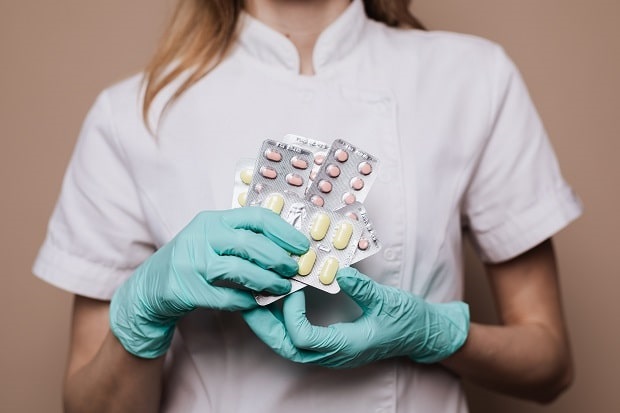
10 Tips on Writing a Good Personal Statement for Pharmacy School:
1. start early.
An amazing pharmacy school personal statement needs a bit of preparation . You do not want to rush it and create a mediocre one, do you? Once you’ve decided which schools you want to apply to, take the time and start planning early about what to write . I’d say it takes at least a month of serious thoughts and several drafts before you can pen down a good one!
2. Introduce Yourself Properly
Start the personal statement with a catchy line to grab the reader’s attention . Once you’ve hooked them to read further, switch to describing yourself next. You must connect with the reader, even if it requires sharing a few personal anecdotes. The aim is to communicate who you are as a person. Think of it as a written monologue you submit to the admission committee. The more the readers connect with you on a personal level, the better the chances they’ll like you and eventually accept you.

Always be genuine when introducing yourself. Let your real personality shine.
3. Have a Proper Structure and Organize Your Essay Well
Ensure your personal statement essay has an appropriate structure. As I mentioned above, you must start with a catchy sentence to grab the recipient’s attention. This will keep them intrigued to read more. Once you have a proper “first statement” follow it up with smaller paragraphs. Try to keep your essay theme-based. Talk about every topic distinctively and move from one topic to another seamlessly. Also, you must have a strong conclusion that would summarize the entire personal statement. Try to stay away from controversial or highly debatable topics and make your essay as reader-friendly as possible.
4. Show Your Enthusiasm and Commitment
Unless you’re passionate about pursuing a career that involves legally preparing and dispensing drugs, you should not apply for admission to a pharmacy school. Your lack of interest would reflect in your essay if you are just applying for the sake of getting into college. Trust me, pharmacy school and the subsequent post-graduate courses you’d attend are no joke! You do not want to be unhappy in the future for choosing this profession halfheartedly. So, once you’re committed to writing your statement, show your enthusiasm through your words. Don’t overdo it, though. There’s a long road of struggle ahead and the admission committee must understand that you’re committed to winning the battle!

Your enthusiasm and commitment to the course must be reflected in your statement.
5. Do Not Add Fillers
Fillers are nothing but including unnecessary information in your writing. Simply put, it is “beating around the bush”. Please do not do it. In any form of writing, including fluff words is inessential, and it is uncalled for. Research pharmacy topics and trends and come prepared to write a personal statement . Stick to the point and do not add irrelevant content just to meet a certain word limit or make your essay seem longer. The admission committee will most likely lose interest in your essay if you do so. Put your focus on writing clear and concise content.
6. Include Academic Successes that are Pharmacy-related
Talking about achievements unrelated to the course will not help you earn brownie points. Why would winning an art contest or achieving top grades in mythology interest the admission committee? On the flip side, are there any distinctive academic successes that connect your aptitude for science or your passion for enrolling in a pharmacy school ? Be sure to include that. Try to show how you are suited for this profession. However, do not force-fit anything by talking about unrelated achievements.

If you excel in science subjects in high school, particularly those that involve laboratory experiments, include this in your statement.
7. Ensure the Grammar and Punctuation are error-free
Always proofread your work. Even if that means reading it 5 times in a row. There is always room for improvement, you know. Ask for feedback and work on the content and structure of your statement if needed. You could leverage online writing add-ons or apps such as Grammarly or ProWritingAid to check your grammar and punctuation. The admission committee can spot even tiny mistakes easily, and you wouldn’t want to make one, right? Here’s a pro tip. Ask your English professor or teacher to read through your essay once. Who can check your work better than them? Incorporate changes as necessary.
8. Say No to Plagiarism
Plagiarism or copying others’ work is your expressway toward rejection. Not only does it affect your credibility in the field, but plagiarism is also a punishable offense . There are multiple apps and tools to detect plagiarized content, so do not even think of it. Yes, you can research and look through similar examples for ideas on the content and structure. However, always write your pharmacy school personal statement in an original format and your own words. If you must copy an idea from some published sources, make sure that you paraphrase the sentences and paragraphs well.

9. Get a Second Opinion
I mentioned earlier about connecting with your English professor or asking others for feedback on your content. I want to put it out here once again, that you must connect with your friends or family who may or may not have pharma experience, to check your work. Their unique perspective can offer guidance to help you improve your content. Take any constructive feedback with a positive attitude and work on bettering your final copy.
10. Display Confidence
It requires immense sincerity and self-reflection to write a pharmacy school personal statement. For your readers, to relate better to your essay, you must also consider their point of view. Your statement should exude confidence. Include selling points and market your brand by providing pieces of evidence or cases. For example, if you want to mention that you have exemplary communication skills, tell them how and authenticate your content.
Final Thoughts
A pharmacist’s job requires hard work, dedication, and utmost passion. If this is your calling, jump at the opportunity of applying to top pharma schools. Keep these tips in mind while writing your pharmacy school personal statement. Did I miss anything above that may have worked for you? Next up, you may want to explore a guide to the best marketable skills you can learn today .

Get your free PDF report: Download your guide to 100+ AI marketing tools and learn how to thrive as a marketer in the digital era.

Rafal Reyzer
Hey there, welcome to my blog! I'm a full-time entrepreneur building two companies, a digital marketer, and a content creator with 10+ years of experience. I started RafalReyzer.com to provide you with great tools and strategies you can use to become a proficient digital marketer and achieve freedom through online creativity. My site is a one-stop shop for digital marketers, and content enthusiasts who want to be independent, earn more money, and create beautiful things. Explore my journey here , and don't miss out on my AI Marketing Mastery online course.

The Pharmacy Personal Statement Guide w/Prompts & Examples
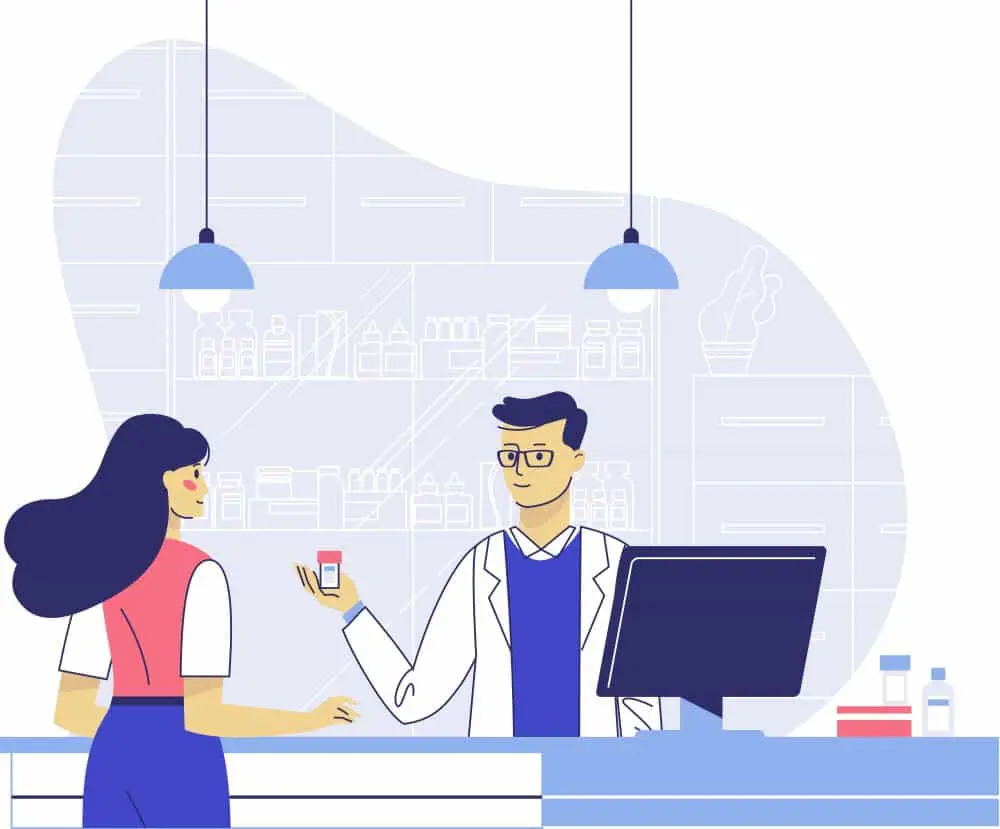
The Importance of Writing a Great Pharmacy Personal Statement
To become a pharmacist anywhere in the UK, you’ll need to be registered with the General Pharmaceutical Council (GPhC) and have, at minimum, a master’s degree from an accredited university. This requires you to enter into a graduate-level programme for pharmacology. When applying to these types of programmes, it’s very important that you have a strong pharmacy personal statement.
When it comes to applying to a pharmacy programme at the graduate level, there are many requirements to meet. Many of these come in the form of prerequisites you need before you can be considered for grad school.
Pharmacy Programme Prerequisites
The common prerequisites for applying to university for pharmacology mostly involve classes you should’ve taken before applying to the programme. These classes include three (3) A-levels in the following subjects:
- and various Maths
You must receive a grade of B or higher in each of these for it to meet the prerequisite.
You must also take five (5) General Certificates of Secondary Education, otherwise known as GCSEs, in the following subjects:
- Various Maths
- English/Language
For these courses, you must have received a grade of C or higher.
There are a few alternate routes you can take if you don’t meet the above listed prerequisites. These include having a foundational degree in the field of pharmacy, having an HNC, HND or BTEC with a science focus, having earned the equivalent qualifications at an Irish or Scottish university and a few others. Having work or internship experience with a pharmacist also helps.
Depending on the particular Uni you plan on attending, you may have some additional institutional requirements. These will be listed on the university’s website and/or in the admissions packet for the school.
Steps to Obtaining Admission
Once you’ve covered all your prerequisite courses, it’s time to start the actual process of admissions. Do your research first; find the best Uni for you and check the website to see what types of admissions requirements they have in place. Some universities require you to take the PCAT (Pharmacy College Admissions Test) and earn a certain score before they’ll consider you for admission.
If you’ve not already taken the PCAT, though, check the admissions requirements for your particular Uni to see if you need to do so. Several universities across the country are eliminating the PCAT requirement, and there’s no reason to take it if it isn’t a requirement for your specific school. The next step is to fill out and submit an application to the school.
Applications require a lot of personal information, including your name, contact information, educational history, professional resume, personal and professional references, and a pharmacy personal statement, which is one of the most important parts of the application packet. Some universities require you to pay a fee or provide them with a fee waiver when submitting your application.
After you’ve submitted your application, it’ll be reviewed by the university’s admissions team. At this point, they may call you in for an interview . After that, you should be ready to enter the pharmacy programme.
But how do you make sure you get to the interview stage? Aside from having good grades and an impressive personal resume, writing an exceptional and memorable pharmacy personal statement is the best way to make sure you’re called in for that final step.
What is a Pharmacy Personal Statement?
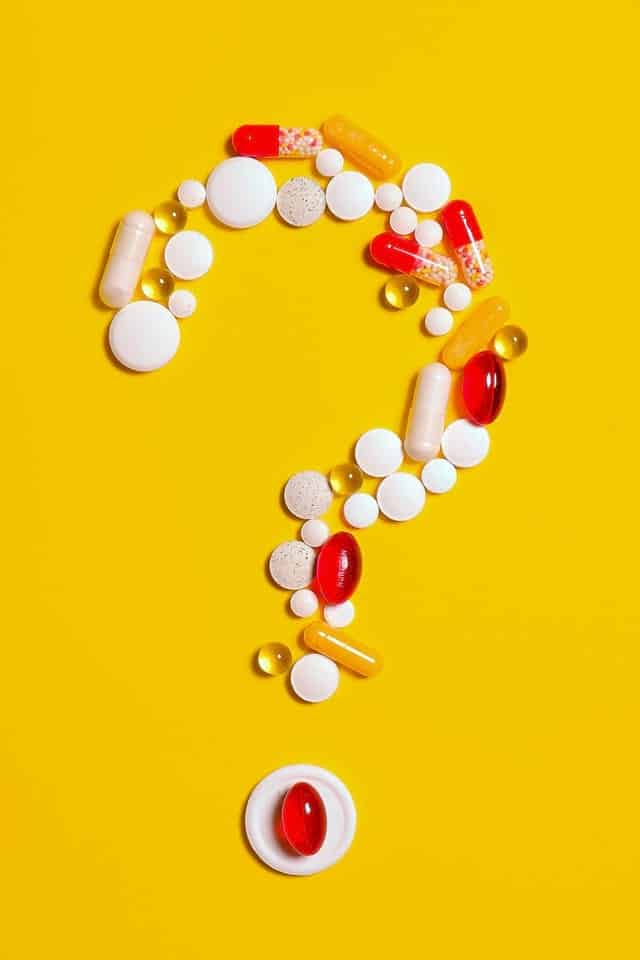
A pharmacy personal statement is a personal essay you write about yourself. Many unis will give you a specific prompt to help guide your writing. For those few that don’t, there are several things you’ll want to include , such as why you want to pursue pharmacology, what about that particular university’s programme appeals to you, any achievements or awards you’ve received, any relevant internship or work experience and why you’d make a good candidate.
There are also attributes about yourself you’ll want to mention in your personal statement. These are things you can’t simply write out in sentences. Instead, you’ll want to discuss relevant topics and tell personal stories that show that you have these qualities without you directly saying, “ I work well with others and have good communication skills. “
These important attributes include, but aren’t limited to:
- Excellent people skills
- Strong attention to detail
- Honesty and integrity
- Good communication skills
- The ability to work on a team
- Leadership skills
- Strong organisational skills
- Highly motivated to succeed
- A strong sense of responsibility and professionalism
All of these qualities make you a good candidate for a pharmacy programme. The more of these you can show you have, the more likely you’ll be called for an interview.
What is a Prompt, and Why Should You Follow It?
If your specific university provides you with a prompt, they’re simply giving you a question to help focus what you write about in your personal statement. There are several different prompts unis use, and we’ll discuss some of the most common of those later.
No matter what the prompt is, it’s important you answer it completely. Most universities use prompts relative to your interest in pharmacology, your educational history, or attributes that would make you a good candidate for their programme. There will occasionally be a prompt that surprises you though. In those cases, still, answer the prompt.
Be as honest and as thorough as you can, and remember, even if the prompt is something strange or unusual, there are usually still ways to work in stories that show you in your best light. You may just have to be a little more creative.
Below, you’ll find a few of the most common prompts for writing your pharmacy personal statement on your admissions applications.
Pharmacy Personal Statement Prompts
Prompt 1: tell us about yourself (kings university london).
Many universities use a very vague prompt that just instructs you to talk about yourself. As Kingston University London puts it, “You are the main topic of this essay.”
This is a great, easy prompt to get. Don’t be afraid to be honest and really talk yourself up in this kind of statement.
For this particular prompt, you’ll want to cover everything we mentioned above, particularly why you’re interested in pursuing a career in Pharmacy, what education you’ve had that qualifies you for the programme, any relevant work or leadership experience that would make you a good candidate and anything that showcases the attributes we listed above.
Again, be honest and as thorough as possible. Remember, the goal of this statement is to make you memorable and desirable. As a result, talking about all the great accomplishments or achievements you have isn’t bragging or boasting. It’s what’s required if you want to stand out from the other applicants.
Prompt 2: Demonstrate your commitment to pursuing a career in Pharmacy, and tell us why you’re better suited to the programme than other applicants (King’s College London).
This prompt is quite similar to the above “Tell us about yourself” prompt. In it, you’ll cover much of the same things, especially when you start talking about why you should be chosen for the programme over other applicants.
Just remember that there’s a direct question about why you want to work in pharmacology. Because it’s being asked directly, you want to spend a bit of time giving a complete answer. You can talk about why you became interested in pharmaceuticals in the first place. Was there a specific event in your childhood that inspired you to want to help take care of sick people? Have you had a strong love of chemistry for as long as you can remember? What inspired you to choose this field over all the over available career fields?
This prompt also allows you to talk about your career goals. What do you want to do with your MPharm once you get it? How is this degree going to help you in those goals, and how are you going to use your skills and your degree to make the world better once you do get a job? It would also benefit you to talk about the classes you’ve already taken and the work you’ve already done to work towards your goals.
Prompt 3: What benefits do you expect to gain from admission into our programme? (Cardiff University)
For this prompt, you can still talk a little about why you chose pharmacology and what you hope to do with your degree once you’ve earned it. More importantly, though, you’ll want to answer the actual question the prompt asks. What are you hoping to gain from this particular programme that sets it apart from all the other pharmacy programmes you could have chosen instead?
Talk about specific courses or labs for which this programme is well-known. This is a great way to showcase that you’ve done your research and really looked into what this university has to offer. By highlighting particular aspects of the programme, you prove to the admissions team you didn’t just pick this university on a whim or because it was the closest one to your flat. Instead, you did some reading and compared the programme to those at other schools and decided this one was the best fit for you because… You fill in the blanks!
Proving to a school that you know something about the school and that you hope to gain the actual knowledge and skills they’re famous for providing to students is a huge point in your favour. This specific prompt allows you to do that.
Prompt 4: Tell us about any work experience, internships, leadership positions you’ve held or outside activities that would support your application for admission (The University of Manchester).
This prompt is another one that’s similar to the “ Tell us about yourself ” prompt. In answering this prompt, you’ll be able to talk about yourself, your history, your past accomplishments, your interest in pharmacy, and more. You’ll want to put your largest focus, though, on the actual work you’ve done to prepare you for entrance into this programme.
This could include any of the following:
- Working in an actual pharmacy or closely related field
- Internships, volunteer experience or other placements within a pharmacy or related field
- Any work experience you’ve had where you were part of a team or, even better, the leader of a team
- Educational experience that would prepare you for the programme
- Any honours you’ve received that show you to be exceptional in any relevant field
These are only a few examples of things you could discuss in response to this prompt.
Standard Pharmacy Personal Statement Format
No matter the specific prompt you’re given, there’s a general format you’ll use for most personal statements. Occasionally, a university will provide you with specific formatting instructions. If they do, you always want to follow those instructions exactly. If you aren’t provided with instructions, this is the general format preferred for most UK unis and their US counterparts for essays and/or personal statements:
- MLA formatting guidelines
- One-inch margins on each side of the page
- (For the UK) Any professional font as long as the italics are noticeably different – most students use Times New Roman, Arial or Courier
- (For the US) Times New Roman or Arial font
- Font size – 12 pt.
- Double-space, but add no extra lines between paragraphs
- Indent the first line of each paragraph
Additionally, you’ll use the standard Intro-Body-Conclusion format that most MLA essays utilise.
Step 1. Introduction
Depending on the specific prompts people are given, each introductory paragraph will be a little different for each student. Generally, though, this is where you’ll introduce yourself and talk a little about why you’re interested in studying pharmacology in general and why you’re interested in studying at that university specifically. You’ll also want to catch the reader’s attention immediately, in the opening line if possible, but without using gimmicks or something overly dramatic.
According to a how-to guide on the Birmingham City University website , “The most effective opening sentences are simple, to the point and personal to you.”
You’ll also want to avoid writing in cliches or using overused phrasing that everyone else uses. Be original. Be specific. Really help the admissions team understand your drive and passion for pharmacology.
Step 2. Body Paragraphs
Your body paragraphs are where you’ll put the majority of your information. These are the paragraphs where you’ll really dive into answering the question(s) the prompt asks. Unless you’re asked to write an abbreviated personal statement of just a couple hundred words, you should never have less than two body paragraphs, and it’s better to have between three and six.
You want to be comprehensive in your writing; include everything the admissions team might need to hear to sway them in your favour. This generally takes more than a couple of short paragraphs. Remember to indent the first line of each paragraph, and make sure they’re written in an order that makes sense. Don’t jump around from paragraph to paragraph. Make sure each transitions smoothly into the other.
Step 3. Conclusion
In the conclusion of your pharmacy personal statement, you’ll want to bring your entire essay to a smooth, sensible close. Don’t use your conclusion to restate everything you’ve already written. Instead, use it as a place to briefly touch on how entrance into the programme will help you succeed in your future goals.
Also, if it feels appropriate and doesn’t detract from the overall feel of your personal statement, take the time to thank the admissions team for reading it and considering you for application into their school’s pharmacy programme. Be aware that this isn’t always appropriate. If, after adding in the thank you, it seems forced or like it was written just to add more words to an essay that was a little too short, take it out.
Examples of Pharmacy Personal Statements
Example personal statement 1.
“I have gained valuable knowledge studying Chemistry, Biology and Maths which will be beneficial for the Pharmacy course. In Chemistry, I have done a series of experiments which require analytical and evaluative skills such as accurate reading when using burettes. I find the organic Chemistry module rather interesting as I enjoy studying the different reactions of aldehydes and ketones and how these reactions and organic products differ due to the different functional groups present in each compound. Another aspect of chemistry I enjoy is the purification of organic compounds.”
– Read the rest here
This is the second paragraph of a pharmacy personal statement, and it’s a great example of how to answer a prompt that wants you to discuss any relevant experience you’ve had that could help you in the programme.
This student mentions many of the different science and mathematics courses she’s taken in pursuit of her pharmacy degree, but she doesn’t just list them. She goes into great detail about some of the things she’s done in those classes.
This is excellent for a few reasons. First of all, it’s evident in her writing that she greatly enjoyed the classes she took. This shows that she has a passion for the work she’ll have to do to obtain her MPharm. Universities much prefer to have students on campus who are truly invested in and enjoying the work they’re doing.
Additionally, she uses specific terms – “ketones,” “burettes,” “aldehydes” and more – which shows she has actual knowledge and understanding of the field. We can tell that she’s a knowledgeable, hard-working student who has, thus far, retained the information she learned in her undergraduate courses. Everything about this personal statement was done well.
Our Verdict:

Example Personal Statement 2
“I am interested in the Masters of Pharmacy (MPharm) Programme because I am interested in the modules on which it is based. I want to do the MPharm programme so as to extend my knowledge in Medicines. I would like to get a deeper understanding of how to formulate and administer drugs safely.
I would qualify for the Mpharm programme because I have recently completed BSc in pharmaceutical Science which has given me good understanding of how drugs work. The modules I have undertaken In my BSc Pharmaceutical Science will help me navigate successfully in the MPharm programme.”
This personal statement is a little less impressive than the first one. First of all, there’s not really an opening line. When writing a pharmacy personal statement – or a personal statement of any kind, for that matter – you want to have a nice first sentence that breaks the ice and starts the statement off in a fluid manner. This student just jumps right in and answers the question being asked. There’s no lead-in, no story being told.
The grammar in this particular sample isn’t great either. There are randomly capitalised words (“undertaken In my BSc”) and missing words (“given me good understanding”) and a few other problems that could have been addressed by good editing. This is a testament to why you should always proofread and edit your papers before submitting them. It’s even better to give them to a new set of eyes to edit for you if possible.
The two most bothersome things about this sample, though, is that it’s vague, and the sentences are choppy. The student mentions things he’s done (“ recently completed BSc in pharmaceutical Science “) and why he wants to be in the programme (“ because I am interested in the modules on which it is based “), but he gives absolutely no specifics.
He doesn’t talk about anything he learned in his BSc courses that furthered his love of pharmacology, and while he says he’s interested in the programme’s modules, he doesn’t mention a single specific module or why it interests him. We’re just given the bare minimum with no detail – the burger without the cheese and veggies. It’s boring.

Finally, his sentences are horribly choppy. With the exception of one single sentence, each of his sentences starts with the word “I” – “I am,” “I want,” “I would.” There is no variation at all to his writing. It’s boring and makes the reader lose interest. You’ll want to change up the flow and style of your sentences regularly. It adds a little flair and makes your personal statement less monotonous.

Example Personal Statement 3
“Pharmacy has the ability to change people’s lives. Whether it is at the level of the community pharmacist offering the best advice possible to common illnesses, to high-level research into drugs that could cure a range of chronic or life-threatening diseases, the role of the pharmacist cannot be overestimated. As a motivated and hardworking individual, with a desire to understand the fascinating human body along with a joy of helping other people, I strongly believe that studying pharmacy will give me one of the final and most important step towards a rewarding career in the developing field of pharmacy.”
This is another stellar example of what a pharmacy personal statement should be. The writer begins strong with a unique and memorable opening sentence. He tells us, right from the first sentence, one of the reasons he wants to work in the field of pharmacology, but he does so without monotonously and obviously saying, “ I want to be a pharmacist because I think pharmacy can change people lives .” Instead, he simply and concisely says, “ Pharmacy has the ability to change people’s lives. “
It’s a great opening line, and it gives us insight into his reasons for going into the pharmacy field as well. He follows that up with a sentence that shows he’s knowledgeable about different career opportunities in the field of pharmacology.
Then he smoothly transitions into why he, himself, would do well in this field. He tells us he’s hardworking and motivated, but he does so in a way that doesn’t just state those facts outright without context.
He then once again tells us about his interest in the field and also shows us he is someone who enjoys working with and helping others. Finally, he sums up his introduction by leading into what he hopes to gain from the programme.
Although the next paragraph isn’t listed here, it, too, is a smooth transition into the educational and work experiences he’s had that prepared him to do well in the programme. Everything about this personal statement is well-organised, with each paragraph flowing smoothly into the next, and the whole thing covering everything that should be covered in a personal statement.

Example Personal Statement 4
“I am interested in studying chemistry and biology because I would like a career that plays crucial role in public’s health.
I was previously working as a retail assistant and the experience has led me to deal and understand different kind of people. I learnt to keep myself calm, whilst working under pressure environments.
This job has also taught me to work in a fast-paced environment to meet the customer`s demands. This skill will be useful to meet the deadlines while doing my course and working as a pharmacist will enable me to provide good customer services.”
This personal statement is another example of what not to do when writing your own statement for admission into the pharmacy programme.
First of all, the introduction paragraph, shown here in its entirety, is much too short. You have to be an excellent writer to turn one sentence into a paragraph and make it work, and this writer didn’t do that. Your introduction should never be only one sentence. It needs to be fleshed out and thoroughly written. There are some glaring grammatical errors as well.
The next problem with this statement is that the work experience the student writes about isn’t really relevant to the programme she’s trying to enter into. She does an admirable job of trying to make it relevant, by talking about how it helped her learn to work with a multitude of different people and taught her to work quickly, but it doesn’t really work.
Most unis want to know that you have relevant work experience. If you don’t, it’s better to mention placement experiences or internships you’ve had that are relevant as opposed to irrelevant work experience. Even if you only worked in a pharmacy for a day as part of a class project, that’s okay. You can learn a lot in a day, and you can make that work in your writing.
Unless you’re really good at making non-relevant experience seem like it has actual relevance to the programme, it’s better to leave it out altogether. That’s not to say you can’t mention having retail or fast food experience, but you have to make sure that you meticulously explain how that experience is relevant to the pharmacology field.

Example Personal Statement 5
“The enthusiasm I have for the sciences – specifically Chemistry – encouraged me to think about my future career and how a chemistry-related degree could be a possibility for me. I have always enjoyed maths and science throughout my education and I have recognised that I can combine both in a career in pharmacy. I believe pharmacy to be a fast-developing profession and recognise that pharmacists are heavily involved in the introduction of new medicines for all kinds of illnesses, and I find the prospect of working in this field inspiring.”
While this isn’t the best example of a personal statement, it’s far from being the worst. This is considered an average statement. The writer does a good job hitting all the points he should cover in his introduction – why he became interested in the field of pharmacy, a basic knowledge of the job description of a pharmacist and why he wants to work in the field in the future – but doesn’t do it in a way that’s incredibly memorable.
It isn’t the strongest introduction paragraph to a personal statement, but at the same time, it’s fair; it isn’t bad. It’s well-organised; the grammar is mostly as it should be, and the subject of why he wants to enter the programme is well covered. It doesn’t grab our attention and make us want to read more though. In short, this is an introductory paragraph that could go either way.
Although not shown here, the rest of this statement turned out pretty good. The writer found his flow and dived into the subject with an appropriate amount of detail, good grammar and a few memorable points. The strength of his body paragraphs and conclusion made up for his less-than-exceptional introduction, and that’s okay.
We included this sample to show that sometimes you get off to a bit of a slow start and can still finish well. It’s better to start strong, but introductions can be tough. As long as the intro isn’t bad and you make up for the average intro in your body paragraphs and conclusion, you’ll usually be okay.

A Few Final Notes
hile it’s certainly true that grades and work experience are important when applying to uni to work on your MPharm, your pharmacy personal statement is equally important. Universities get huge volumes of applications for their pharmacy programmes. They get so many applications that many of them have a “Due to the large volume of applications we receive…” disclaimer on their websites.
Your personal statement is where you can be creative and ensure your essay stands out from the rest. Be sure you check out the formatting requirements ahead of time and stick to them exactly.
Also, make sure you read the personal statement prompt well and understand it before you start writing. Finally, make sure you edit your paper several times before submitting it.
Have a friend, loved one, mentor or former professor look over it as well. Where possible, get a reputable online personal statement review service to help ( me shamelessly plugging in our services page lol ) Sometimes, a fresh set of eyes can find mistakes your own eyes can’t.
Be honest and thorough in your response to the prompt, and never try to plagiarise someone else’s work. It never works. It helps to run a plagiarism checker on your final draft- just to be sure!
Finally, be sure you stick to the length requirements. If the statement is supposed to be between 500 and 750 words, make sure that’s what it is. Don’t stop at 490 words and assume it will be enough, and don’t go over an extra 50 words and assume the admissions team will be okay with it. These people read a lot of personal statements; they set a maximum word count for a reason.
Most importantly, do your best, and fill your personal statement with passion. If an admissions team can tell that you’re passionate about your education and your subsequent career in pharmacy, you’ve already won half the battle.
13 Best Books for Nursing Students to Read- Reviewed
5 Best MCAT Prep Books, According to Med Students
5 Best MCAT Prep Courses, According to Med Students
Leave a Comment Cancel reply
Save my name, email, and website in this browser for the next time I comment.
This site uses Akismet to reduce spam. Learn how your comment data is processed .
Advertise With Us
Advertising Disclosure
Privacy Policy
Cookie Policy
As an Amazon Associate (and a participant of other affiliate programs), this site earns from qualifying purchases.
© 2024 TheCollegeApplication.com, a Delicto Holdings Company | All Rights Reserved

- UCAS Guide >
- Pharmacy Advice
Writing the Perfect Pharmacy Personal Statement: Expert Tips
Crafting the perfect pharmacy personal statement can be a nerve-wracking endeavour. With the high stakes and fierce competition, how do you make your application stand out ?
In this blog, we’ve gathered expert tips to transform your personal statement from average to outstanding. Whether you’re a seasoned wordsmith or find writing daunting, our practical advice will steer you in the right direction.
Let’s dive in and unlock the doors to your dream pharmacy school!
How to Write a Pharmacy School Personal Statement
Crafting a compelling pharmacy school personal statement is crucial to making a lasting impression on the admissions committee . Your personal statement is a powerful tool to showcase your passion for pharmacy and demonstrate how your background and achievements align with this career path.
To help you create an outstanding personal statement that sets you apart from other applicants, follow these essential steps :
1. Research and Understand the Requirements
Before you begin writing, thoroughly research the pharmacy schools you’re applying to and understand their specific requirements for personal statements. While some schools may provide prompts, others may allow more flexibility in your topic choice. Take note of any word limits or formatting guidelines to tailor your statement accordingly.
2. Showcase Your Genuine Interest in Pharmacy
Start your personal statement by showcasing your authentic passion for pharmacy. Explain why you want to become a pharmacist and how this career aligns with your personal goals and values. Share a significant experience or moment that ignited your interest in pharmacy, and highlight how helping people and making a positive impact drives your ambition.
3. Highlight Relevant Experiences and Achievements
Pharmacy schools value applicants with diverse experiences and achievements that reflect their readiness for this profession. Identify experiences, such as volunteer work, internships, or relevant coursework, that have prepared you for success in pharmacy. Describe how these experiences have shaped your skills and character, making you a well-rounded candidate .
4. Demonstrate Qualities of a Successful Pharmacist
Showcasing the qualities of an excellent pharmacist is crucial in your personal statement. Discuss the attributes you admire in pharmacists, such as empathy, problem-solving abilities, or effective communication skills. Substantiate your claims by providing concrete examples from your academic achievements or work experiences that exemplify these qualities.
5. Emphasise Your Uniqueness
Stand out by highlighting your unique strengths, qualities, or experiences . If you have real-life experience in the healthcare industry or have volunteered in relevant settings, share these aspects to demonstrate your commitment to pharmacy and your understanding of the field.
6. Address Any Weaknesses Proactively
If your application has any weaknesses, such as low grades , consider addressing them proactively in your personal statement. However, avoid making excuses and instead focus on how you have learned from these challenges and how they have shaped your determination to succeed.
7. Structure Your Personal Statement Effectively
A well-structured personal statement is easier to read and leaves a lasting impact. Organise your statement into an introduction, body paragraphs, and a conclusion. Each paragraph should address specific points or themes coherently. Begin with a compelling opening that captures the reader’s attention and maintains their interest.
8. Craft a Strong Opening Paragraph
The opening paragraph is your chance to make a strong first impression . Consider starting with an engaging anecdote, a thought-provoking quote, or a captivating question that hooks the reader. This will set the tone for the rest of your personal statement and encourage the admissions committee to continue reading with enthusiasm.
9. Show, Don’t Tell
Avoid vague statements and use descriptive language and vivid examples to illustrate your qualities and experiences. Show the admissions committee how your skills and attributes have manifested in real-life situations , reinforcing your suitability for pharmacy school.
10. Seek Feedback and Revise
After completing your first draft, seek feedback from trusted individuals, such as teachers, mentors, or peers. Accept constructive criticism and make necessary revisions to refine your personal statement further. Multiple rounds of proofreading and editing will ensure your statement is error-free and communicates your message effectively.

Avoiding Common Mistakes in Pharmacy Personal Statements
Writing a pharmacy personal statement can be challenging, but avoiding common mistakes can significantly improve its impact on the admissions committee. Your personal statement reflects your passion for pharmacy and your suitability for the profession.
To help you create a compelling and polished personal statement , let’s explore some common errors to avoid and essential proofreading and editing tips to ensure a stellar final draft.
Generic Statements:
One of the most common mistakes applicants make is using generic or clichéd statements that lack originality. Avoid using overused phrases and anecdotes that do not truly represent your experiences and motivations.
Lack of Focus:
Your personal statement should clearly focus on pharmacy and why you are passionate about pursuing this profession. Avoid including unrelated experiences or irrelevant details that may distract from your main message.
Exaggeration and Overconfidence:
While it is essential to highlight your strengths and achievements, avoid exaggerating or appearing overly confident . Be honest and genuine about your experiences and abilities.
Grammatical Errors and Typos:
Spelling mistakes, grammatical errors, and typos can create a negative impression on the reader. Proofread your personal statement thoroughly to eliminate any such errors.
Long and Unstructured Paragraphs:
Lengthy, unstructured paragraphs can make your personal statement difficult to read. Aim for concise and well-organised content to keep the reader engaged.
Focusing Solely on Academics:
While academic achievements are crucial, a pharmacy personal statement should also emphasise your personal qualities, motivation, and relevant experiences that align with the profession.
Final Takeaways
Mastering the perfect pharmacy personal statement is vital for securing your dream program . Our expert tips will help you create a captivating, error-free statement highlighting your passion for pharmacy. Tailor it to each school, showcase your future goals, and stay authentic.
A well-crafted personal statement can set you apart from other applicants. Follow the guidance this Medic Mind blog provides, and best of luck on your journey to pharmacy success!
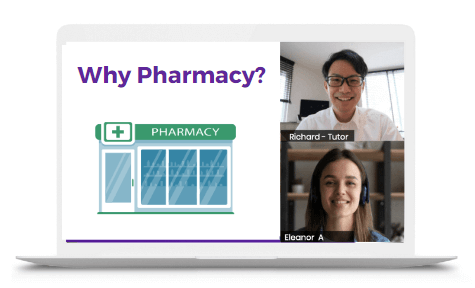
→ Q: Should I include my academic achievements even if they are not directly related to pharmacy?
A: Yes, including relevant academic achievements can showcase your dedication and discipline. However, focus on highlighting experiences that demonstrate your passion for pharmacy.
→ Q: How long should my pharmacy personal statement be?
A: Aim for a concise statement, ideally one to two pages. Ensure it includes all essential information while keeping the reader engaged.
→ Q: Is it necessary to mention extracurricular activities in my personal statement?
A: Including extracurricular activities can show a well-rounded personality. Highlight experiences that demonstrate your leadership, teamwork, and commitment to service.
→ Q: Can I address any weaknesses or gaps in my academic history in the personal statement?
A: Yes, you can briefly address any weaknesses or gaps, but focus on how you have learned from those experiences and how you plan to overcome them in your pharmacy journey.
Was this article helpful?
Still got a question leave a comment, leave a comment, cancel reply, what are you looking for , let's get acquainted what is your name, nice to meet you, {{name}} what is your preferred e-mail address, nice to meet you, {{name}} what is your preferred phone number, what is your preferred phone number, just to check, what are you interested in, when should we call you, what time works best for you (uk time), how many hours of 1-1 tutoring are you looking for, my whatsapp number is..., for our safeguarding policy, please confirm....
Please provide the mobile number of a guardian/parent
Which online course are you interested in?
What is your query, you can apply for a bursary by clicking this link, sure, what is your query, thank you for your response. we will aim to get back to you within 12-24 hours., lock in a 2 hour 1-1 tutoring lesson now.
If you're ready and keen to get started click the button below to book your first 2 hour 1-1 tutoring lesson with us. Connect with a tutor from a university of your choice in minutes. (Use FAST5 to get 5% Off!)
- AI Content Shield
- AI KW Research
- AI Assistant
- SEO Optimizer
- AI KW Clustering
- Customer reviews
- The NLO Revolution
- Press Center
- Help Center
- Content Resources
- Facebook Group
A Quick Guide to Writing Pharmacy School Personal Statement
Table of Contents
When it comes to applying to pharmacy school, your personal statement is one of the most important pieces of your application. It’s your opportunity to stand out from the rest of the applicant pool. So how do you write a personal statement that will make an impression? This article provides valuable tips and a pharmacy school personal statement sample to study and use as inspiration while writing one for yourself.
So read on for everything you need to know about writing a successful pharmacy school personal statement!
What Is a Pharmacy School Personal Statement?
Pharmacy school personal statements are documents that allow pharmacy students to introduce themselves and their reasons for wanting to attend pharmacy school. They can also highlight any unique experiences or qualifications the student has that would make them a good candidate for admission into pharmacy school.
Personal statements are important because they help admission committees get to know potential students beyond just their grades and test scores. Your statement should be well-written, honest, and reflective of who you are as a person.
What Do Colleges Look for in Pharmacy Students?
The skills and qualities that colleges look for in pharmacy students typically include the following:
Strong Analytical and Problem-Solving Skills
Pharmacy is a science-based profession, so the ability to think critically and solve complex problems is essential.
Solid Math Skills
A foundational knowledge of math is necessary for understanding the concepts behind pharmaceutical calculations.
Excellent Communication Skills
The pharmacist’s role involves communicating with patients, other healthcare professionals, and pharmacists at different pharmacies. Good communication abilities are essential for success in this field.
Passion for Helping Others Improve Their Health
Pharmacists play a significant part in improving patient care. So it’s important that potential students have a sincere desire to help others achieve better health outcomes.
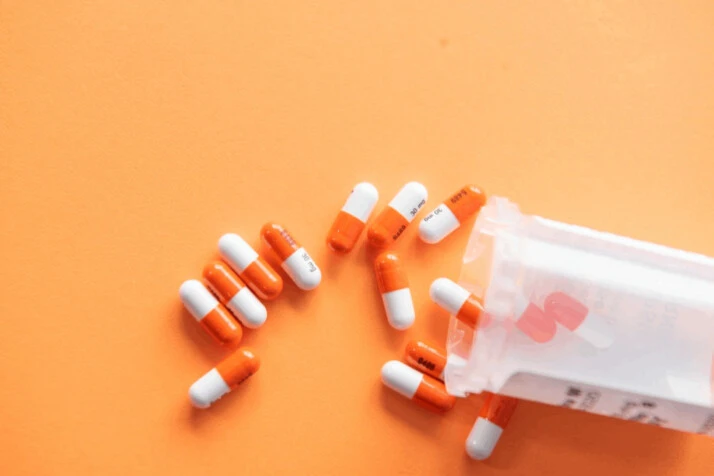
Tips to Write a Pharmacy School Personal Statement
Here are some practical tips to keep in mind when writing your pharmacy school personal statement :
- Start early: Give yourself plenty of time to write a strong personal statement. This isn’t something that can be rushed, so start thinking about it well before the application deadline.
- Be specific: Don’t just say that you want to become a pharmacist because you like helping people. Give concrete examples of how you’ve helped others in the past and what motivated you to pursue this career path.
- Sell yourself: Emphasize your strengths and why you believe pharmacy is the right fit for you. Think about what sets you apart from other candidates.
- Show, don’t tell: Rather than simply stating your goals or qualifications, use anecdotes or stories to illustrate them. This will make your essay more engaging and unique.
Pharmacy School Personal Statement Sample
Use the following pharmacy school personal statement sample as inspiration to craft your own:
Ever since I was a little girl, I loved going to the pharmacy with my mom. Watching her talk to the pharmacist always fascinated me and sparked my interest in pursuing a career in pharmacy. As I grew older, I began to realize that pharmacies are more than just places where you can buy medication. They play a crucial role in our healthcare system by ensuring that medications are dispensed correctly and safely. This is why I am so passionate about becoming a pharmacist myself. I want to help contribute to making sure that people have access to quality medications when they need them most.
While attending college, I had the opportunity to work as an intern at several different pharmacies. This gave me invaluable experience working directly with patients and pharmacists alike. Through these experiences, I developed a strong love for chemistry and pharmacology. This has only solidified my desire to pursue a degree in Pharmacy once I complete my undergraduate studies.
Ultimately, my goal is to become licensed as PharmD and work within a community or hospital setting. I want to dispense medication prescribed by physicians optimally and safely to facilitate patients’ healing process. Providing high-quality care combined with warmth, compassion, and individualized service excellence will make a difference in the lives of those we encounter every day.
The purpose of a personal statement is to give the admissions committee a preview of what you have to offer as a prospective student . It allows a recruiter to form a personal opinion of you.
This article provides valuable tips with a strong sample to help you craft a pharmacy personal statement and present yourself as a qualified applicant.

Abir Ghenaiet
Abir is a data analyst and researcher. Among her interests are artificial intelligence, machine learning, and natural language processing. As a humanitarian and educator, she actively supports women in tech and promotes diversity.

Explore All Write Personal Statement Articles
How to draft meaningful length of law school personal statement.
Are you confused on how to write a law school personal statement? One of the essential elements of your application…
- Write Personal Statement
Effective History and International Relations Personal Statement to Try
Are you considering studying history and international relations? Or you may be curious about what a degree in this field…
Guide to Quality Global Management Personal Statement
Are you applying for a global management program and want to stand out from the crowd? A well-written personal statement…
How to Draft Better Examples of Personal Statements for Residency
Achieving a residency can be a massive accomplishment for any aspiring medical professional. To secure your spot in one of…
Tips for Drafting a Free Example of Personal History Statement
A personal history statement can be crucial to many applications, from university admissions to job search processes. This blog will…
Writing Compelling Dietetic Internship Personal Statement
Applying for a dietetic internship is a rigorous process and requires submitting a personal statement, which is an essential part…
ESLDIRECT.COM
ESL Resources for Job Hunters, English Learners, Adult Learners and Tutors
Pharmacy Personal Statement Examples
In this article, we discuss pharmacy personal statement examples and how to write a strong statement for pharmacy school.
Find out how a chemistry set and a mom who was a nurse put one candidate on the path to becoming a pharmacist, and how another candidate learned about patient advocacy in rural Cameroon. We’ll also find out how a potential international student plans to contribute to the community in the USA.
The pharmacy personal statement is one of the most important parts of your application. It’s your chance to show who you are as a person and why you want to study pharmacy.
Your personal statement should be well-written, honest, and specific to you as an individual. To help you get started, we’ve put together some pharmacy personal statement examples below.
Table of Contents
What is a pharmacy personal statement, how to write a strong personal statement for pharmacy school, pharmacy personal statement example 1, pharmacy personal statement example 2, pharmacy personal statement example 3, faq (frequently asked questions), more personal statement tutorials.
It’s a short personal essay written about yourself that is used to help graduate schools decide if you would make a good candidate for their programme.
It explains why you want to pursue pharmacology, any awards or achievements you have received, any relevant work or internship experience, and attributes that make you a good candidate, such as excellent people skills, strong attention to detail, and strong organisational skills.
It can also provide an opportunity to showcase qualities that can’t be easily articulated in words, such as empathy, leadership, and motivation. Ultimately, it can be the deciding factor in your acceptance into a pharmacy programme.
Step 1: Explain your USP (unique selling point)
When writing a personal statement for pharmacy school, it is important to determine your approach – what do you need them to know? What is your USP?
You should consider your motivation for pursuing pharmacy as a career, the experiences that have prepared you for pharmacy school, your personal qualities that make you a strong candidate, and how you fit with the pharmacy school you are applying to.
By reflecting on these factors, you can develop a clear and compelling personal statement that highlights your strengths, experiences, and passion for pharmacy.
As an international student, I am committed to bringing a unique perspective to the classroom and contributing to the cultural diversity of the pharmacy program. I believe that my background and experiences will enable me to connect with patients and colleagues from different cultures and build strong relationships based on mutual respect and understanding. I particularly look forward to volunteering with Spanish speakers in the local community during my time at pharmacy school.
Step 2: Read and reread the institution’s instructions
When writing a pharmacy personal statement, it is important to carefully read and reread the instructions provided by the institution to ensure that you meet all the requirements and guidelines.
Start by reading the instructions thoroughly, taking notes on key points, highlighting important details and asking for clarification if needed.
Make sure to pay attention to what is to be included in your personal statement (for example a key question) and if there is a word limit.
Step 3: Consider getting help from an expert
- Identify potential experts. You can do this by reaching out to your academic advisor, contacting your local pharmacy association, or searching online.
- Reach out to them respectfully
- Provide them with the necessary information such as your academic history, work experience, and goals for pursuing pharmacy.
- Listen to their feedback carefully
- Express your gratitude for their time and expertise.
Remember to be respectful of their time and follow up in a timely manner.
Step 4: Write your personal statement
- Begin by summarising your suitability for the role. Make sure to write from the first-person viewpoint.
- Outline your qualifications and experience, followed by your relevant skills. Be sure to emphasize your enthusiasm for the field of pharmacy and the role you are applying for.
- Keep your personal statement brief and include details relevant to the role.
- Be open and honest in your writing. Being honest in your personal statement will help to prevent any exaggeration or incorrect information.
- Talk about how you solved a problem, really connected with a patient or learned something important relating to pharmacy studies.
- During a placement in Cameroon, I learned to ask the obvious and not so obvious questions. Why were several HIV patients from one village suddenly presenting with stomach ulcers? It turned out that some villagers only ate once a day and without support, could not follow the instructions to take medications twice a day with food. A local NGO helped with training on nutritious plants that were safe to eat, in order to take the second dose of medication. I realised that I want to be the type of pharmacist that goes the extra mile to understand the everyday healthcare challenges in the lives of her patients, and support them where needed.
Step 5: Determine your target audience and message
To determine your target audience and message for your pharmacy personal statement:
- Research the pharmacy program: Learn as much as you can about the pharmacy program you are applying to, including its mission statement, values, and requirements. This will help you to understand what the program is looking for in its applicants.
- Identify the target audience: Consider who will be reading your personal statement, such as admissions officers or faculty members. Think about what they are looking for in an applicant and what they might be interested in hearing from you.
- Consider your message: Think about what you want to convey in your personal statement, such as your passion for pharmacy, your experiences that have prepared you for pharmacy school, and your goals for your pharmacy career. Make sure that your message aligns with the values and mission of the pharmacy program you are applying to.
- Tailor your message to the audience: what are you most interested in learning about? For this candidate, it’s the way in which pharmacists can use new technology.
In particular, I am interested in exploring the ways in which technology can be leveraged to improve patient outcomes and streamline healthcare delivery. During the recent pandemic, apps such as HealthPass made it much safer for more vulnerable patients to participate in daily life. As the healthcare landscape continues to shift towards a more patient-centered, value-based model, I believe that pharmacists must be at the forefront of innovation and change.
Step 6: Keep your personal statement concise and clear
Make sure that each point is concise. Paraphrase and condense the content where possible. Make sure that your final statement does not exceed one page.
The order of your paragraphs must make sense. Make sure your points flow logically and that there is a smooth transition from one point to the next.
Step 7: Share your personal statement with a trusted reviewer
Have an expert review your personal statement. Ask someone you trust to read over your statement and provide feedback on the grammar, structure, and content.
Make any necessary changes. Based on the feedback you receive, adjust your statement to make it stronger.
As a dedicated and passionate student of pharmacy, I am committed to making a difference in the lives of others through my work. I believe that pharmacists have a unique opportunity to improve the health and well-being of patients, and I am eager to contribute to this important field.
My interest in pharmacy began at a young age when I saw first-hand the impact that medications can have on a person’s quality of life. I witnessed my grandmother struggle with a chronic illness, and I was inspired by the role that her pharmacist played in helping to manage her condition. This experience motivated me to pursue a career in pharmacy, and I have been working diligently towards this goal ever since.
Throughout my academic career, I have taken a rigorous course load that has prepared me well for the challenges of pharmacy school. I have excelled in courses such as organic chemistry, biochemistry, and pharmacology, and I have gained practical experience through internships and volunteer work. I am confident that my academic background has prepared me well for the challenging curriculum of pharmacy school, and I am excited to continue my education in this field. In addition to my advocacy experience and academic accomplishments, I possess a number of personal qualities that I believe make me a strong candidate for pharmacy school. I am detail-oriented and meticulous in my work, and I am committed to providing the highest level of care to patients. I am also an excellent communicator, and I believe that effective communication is essential to building strong relationships with patients and healthcare providers.
During a placement in Cameroon, I learned to ask the obvious and not so obvious questions. Why were several HIV patients from one village suddenly presenting with stomach ulcers? It turned out that some villagers only ate once a day and without support, could not follow the instructions to take medications twice a day with food. A local NGO helped with training on nutritious plants that were safe to eat, in order to take the second dose of medication. I realised that I want to be the type of pharmacist that goes the extra mile to understand the everyday healthcare challenges in the lives of her patients and support them where needed.
Ultimately, my goal as a pharmacist is to improve the health and well-being of patients through compassionate care and innovative solutions. I am committed to lifelong learning and professional development as a pharmacy professional, and I am excited to contribute to the dynamic and constantly evolving field of pharmacy. Thank you for considering my application.
As a very young child playing with a $10 chemistry set, I was sure that if I tried hard enough I could mix up a medicine that could save all the sick people in the hospital where my mother worked as a nurse! As a dedicated and motivated student of pharmacy, I am thrilled to have the opportunity to pursue an advanced degree in this exciting and constantly evolving field. Throughout my academic career, I have been driven by a passion for helping others and a deep curiosity about the science of medicine.
I believe that pharmacy is uniquely positioned at the intersection of science and patient care, and I am excited to explore the many ways in which pharmacists can make a difference in the lives of patients. From a young age, I was fascinated by the stories of patients my mother would tell, explaining how medicines had helped them to get better. I realised that as researchers work on developing new drugs and therapies to provide education and counselling to patients, pharmacists play a critical role in improving healthcare outcomes and promoting wellness.
In particular, I am interested in exploring the ways in which technology can be leveraged to improve patient outcomes and streamline healthcare delivery. During the recent pandemic, apps such as HealthPass made it much safer for more vulnerable patients to participate in daily life. As the healthcare landscape continues to shift towards a more patient-centred, value-based model, I believe that pharmacists must be at the forefront of innovation and change.
In pursuing an advanced degree in pharmacy, I am excited to collaborate with other healthcare professionals and experts in the field to explore new solutions and approaches. I am eager to learn from experienced professionals, conduct research, and apply my knowledge and skills to real-world challenges to make a meaningful impact on the health and well-being of patients and the ongoing evolution and growth of the field. I am so excited to embark on this exciting new chapter in my academic and professional journey.
As an international student, I am excited to have the opportunity to pursue a degree in pharmacy in the USA. I am drawn to the USA’s reputation for excellence in healthcare and its innovative approach to pharmacy education.
My passion for pharmacy began in my home country, where the numbers of hospitals and doctors per capita are very low and most people would go to a pharmacy rather to a private doctor. I can see the critical role that pharmacists play in promoting wellness and managing chronic conditions. In Mexico, the obesity crisis means that around 14 million adults are living with diabetes, a rise of about 10% in the last few years. This number includes eight of my relatives and without supportive, empathetic pharmacists, I believe that some of my family members would not have survived. As a biology major for my undergraduate degree, I am eager to build on the foundation and gain a deeper understanding of the science of medicine, as well as the complex healthcare systems that underpin patient care.
I am confident that studying pharmacy in the USA will provide me with the knowledge, skills, and experience I need to excel in this challenging and rewarding field. I am particularly excited about the opportunities for hands-on learning and practical experience, as well as the chance to collaborate with other students and professionals from diverse backgrounds.
My goal as a pharmacist is to make a meaningful difference in the lives of patients and to contribute to the ongoing advancement of healthcare in my home country and beyond. I am confident that studying pharmacy in the USA will provide me with the knowledge, skills, and networks I need to achieve this goal, and I am excited to embark on this exciting new chapter in my academic and professional journey.
Some of these questions were already covered in this blog post but I will still list them here (because not everyone carefully reads every paragraph) so here’s the TL;DR version.
What are the essential components of a strong pharmacy personal statement?
A strong pharmacy personal statement should include:
- an introduction
- knowledge and interest in pharmacy
- work or voluntary experience, hobbies and interests
- why you want to pursue pharmacy
- what about that particular university’s programme appeals to you
- any achievements or awards you’ve received
- any relevant internships or work experience
- why you’d make a good candidate
- qualities such as excellent people skills, strong attention to detail, honesty and integrity, and good communication skills.
What qualifications do I need to apply to a pharmacy school program?
In order to apply to a pharmacy school program, you need to have a foundational degree in the field of pharmacy.
A pharmacy degree program in the United States usually involves at least 2 years of specific undergraduate coursework followed by 3-4 years of professional study.
Finally, it’s important to note that depending on the particular university you plan on attending, there may be some additional institutional requirements. These will be listed on the university’s website and/or in the admissions packet for the school.
How do I demonstrate my enthusiasm for a career in pharmacy?
Below are a few tips to help you demonstrate enthusiasm for a career in pharmacy including some examples.
Describe any relevant work experience you have gained in local pharmacies.
This work experience has helped me gain a better understanding of how pharmacies work, as well as how to build trust in dealing with customers. I have also demonstrated empathy, active listening, and confidence in customer interactions.
Discuss the knowledge you have gained from working in different pharmacies.
Through my work in different pharmacies, I have developed an understanding of over-the-counter and prescription medications, treatments, relief, and side effects for common conditions including asthma, diabetes, and hypertension.
Showcase your commitment to learning and development.
I have taken part in self-directed learning to stay abreast of the dynamic field of pharmaceuticals. Through workshops, conferences, and courses, I have learned more about natural treatments, the human body, medicine, and recovery.
How can I demonstrate my suitability for a pharmacy degree programme?
- Academic preparation: Show that you have the necessary academic preparation for a pharmacy degree programme by highlighting your performance in relevant courses, such as biology, chemistry, and mathematics.
- Relevant experiences : Highlight any relevant experiences that demonstrate your interest in pharmacy, such as work or volunteer experience in a pharmacy or healthcare setting.
- Personal qualities: Emphasize the personal qualities that make you a good fit for a pharmacy degree programme. This can include qualities such as attention to detail, strong teamwork and communication skills, the ability to work well under pressure, and a commitment to patient care.
- Career goals : Discuss your career goals and how a pharmacy degree will help you achieve them. Show that you have a clear understanding of the profession and how you see yourself contributing to the field in the future
- Community involvement : Discuss any involvement in your community, such as volunteering at a hospital, patient advocacy or participating in community health initiatives. This can help to demonstrate your commitment to making a positive impact in the lives of others.
What information is required in the body paragraphs of a pharmacy personal statement?
The applicant’s knowledge and interest in pharmacy, work or volunteer experience, and hobbies and interests.
The applicant’s values, goals, and motivations for wanting to pursue a career in pharmacy.
Any relevant awards, certifications, or other accomplishments that set them apart from other applicants.
The applicant’s unique qualities, such as enthusiasm and dedication, will benefit the pharmacy program.
How can I demonstrate my knowledge of the healthcare profession and pharmacology?
- Research extensively on pharmacology and the healthcare profession, including current trends and related topics.
- Organise work experience at pharmacies, paying close attention to how pharmacists interact with customers and handle various prescription drugs.
- Take a course related to the healthcare profession and pharmacology.
- Volunteer with charities or organizations that are related to the healthcare profession, such as Oxfam.
What types of work experience placements are appropriate for pharmacy school applications?
These placements can be found in both the public and private sectors.
In the public sector, pharmacy placements may be available in hospitals and healthcare facilities. Placements may involve assisting with the dispensing of medications, managing the inventory of medications, and providing customer service to patients.
In the private sector, placements may be available in retail stores such as supermarkets and drug stores. Placements may involve managing the inventory of medications, providing customer service to customers, and assisting with the dispensing of medications.
Additionally, placements may be available in pharmaceutical companies. Placements may involve assisting with research and development, managing the inventory of medications, and providing customer service to customers.
How do I make sure my pharmacy personal statement is free of spelling and grammar errors?
To make sure your personal statement is free of spelling and grammar errors, it is important to follow these steps:
- Start writing your pharmacy personal statement as early as possible. This gives you the time to brainstorm some ideas, and then begin your first draft.
- After writing your first draft, carefully revise and edit it first. Then, ask classmates or an academic advisor for feedback and incorporate their comments and suggestions.
- Hire a professional editor to proofread your writing or use a do-it-yourself tool like Grammarly to check for any grammar and spelling mistakes.
- Finally, make sure that your pharmacy personal statement is just on or below the required word count.
- Personal Statement versus Statement of Purpose
- How to Write a Winning Scholarship Personal Statement: With Examples
- Residency Personal Statement Examples: Top Tips for Best Length, Content, and Structure
- Statement of Purpose Examples: How to Write the Best One for You?
- Nursing Personal Statement Examples in 2023
- How to write a Resume Personal Statement That Gets You the Job – with Examples and Tips
- How to Write a Personal Statement for Psychology: With Helpful Tips and Examples
- How to Write a Personal Statement for Engineering: Examples and Advice
- Best Internal Medicine Personal Statement Examples For Residency
- MBA Personal Statement Examples for Graduate Applicants
- Law Personal Statement Examples to Help With Your Law School Application
- How to Write a Personal Statement for Criminology: With Helpful Examples
Clearing Universities & Courses
Clearing advice.
Recommended Clearing Universities
Popular Course Categories

Course Search & Discover
Start the search for your uni. Filter from hundreds of universities based on your preferences.
Search by Type
Search by region.
Recommended Universities

Ravensbourne University London
London (Greater) · 88% Recommended

SOAS, University of London
London (Greater) · 90% Recommended

Middlesex University
London (Greater) · 87% Recommended
Search Open Days
What's new at Uni Compare

Study at Middlesex Uni, a global university renowned for innovation in education.

Leeds Beckett University
AdvanceHE awarded LBU a national award for ambitions to advance race equality.
Ranking Categories
Regional rankings.
More Rankings

Top 100 Universities
Taken from 65,000+ data points from students attending university to help future generations

About our Rankings
Discover university rankings devised from data collected from current students.
Guide Categories
Advice categories, recommended articles, popular statement examples, statement advice.

What to include in a Personal Statement

Personal Statement Tips
Personal statement examples pharmacy personal statements.
Discover personal statement examples written by students accepted onto pharmacy and related courses. Read through the examples to help shape your own personal statement.

Pharmacology will give you a range of career options
Gain a highly sought-after qualification by studying Pharmacology and benefit from the state-of-the-art STEM labs at Bedfordshire.
Pharmacy Personal Statements
Submitted by Angelin
Pharmacy (MPharm)
As I have long been drawn to pursuing a career involving healthcare a...
Submitted by Michelle
Pharmacy is an ever changing profession, under constant development a...
Submitted by Thomas
MPharm Pharmacy B230
Throughout my school life, I have particularly enjoyed the sciences. ...
Recommended Course

undergraduate Universities
Undergraduate uni's.

Ravensbourne

238 courses

Middlesex Uni
470 courses

Cardiff Met Uni
305 courses

Uni of Chester
398 courses

Uni of Leicester
267 courses

Northeastern Uni

Uni of Winchester
154 courses

Staffordshire Uni
272 courses

Coventry Uni
444 courses

Goldsmiths, UOL
273 courses

Leeds Beckett Uni
324 courses

Uni of Sunderland
201 courses
.jpg)
Swansea Uni
771 courses

Uni of East London
317 courses

Uni of Westminster
338 courses

Heriot-Watt Uni
208 courses

Anglia Ruskin Uni
464 courses

Escape Studios

West London IoT

Uni of Roehampton
268 courses

Uni of Kent
413 courses

Uni of Surrey
434 courses

Uni of Suffolk
110 courses

Uni of Hertfordshire
415 courses

Uni for Creative Arts
457 courses

Uni of Bradford
265 courses

528 courses

Queen's Uni
411 courses

Uni of Bedfordshire
327 courses

Uni of Portsmouth
547 courses
,-Bristol.jpg)
UWE, Bristol
252 courses

Kingston Uni
373 courses

Uni of Essex
801 courses

Leeds Arts University

ARU Writtle
104 courses

353 courses

Uni of Huddersfield
458 courses

Uni of Brighton
257 courses

Uni of C.Lancashire
531 courses

Wrexham Uni
171 courses

Bath Spa Uni
292 courses

Edge Hill Uni
243 courses

Uni of Hull
274 courses

Nottingham Trent
537 courses

Edinburgh Napier
184 courses

Uni of Reading
391 courses

246 courses
Find the latest from Uni Compare

Ravensbourne University
Want to experience an innovative, industry-focused education? Click here!

University of Surrey
Surrey has been ranked 4th for overall student satisfaction [NSS 2023].

Pharmacy School Personal Statement

Personal statements. A lot of undergraduates and postgraduates go through this. They are the kinds of getting-to-know-you in an educational way for the majority of university admissions. However, not everyone is fully aware of their uses and importance. When a student plans to take up a course in a school or university of their choosing, they would always go through the same if not the common requirements that are given to the school or university of their choosing. As students, it is their responsibility to be able to write a good pharmacy school personal statement or at least get the hang of writing a good personal statement regardless of what their choice of course they are going to be taking up. With that being said, here are your examples of pharmacy school personal statements below. Enjoy!
5+ Pharmacy School Personal Statement Examples
1. pharmacy school personal statement template.
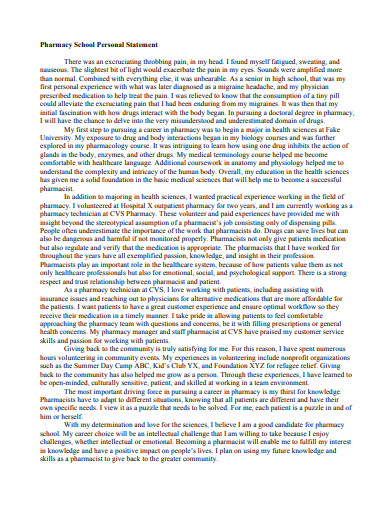
Size: 61 KB
2. School of Pharmacy Personal Statement
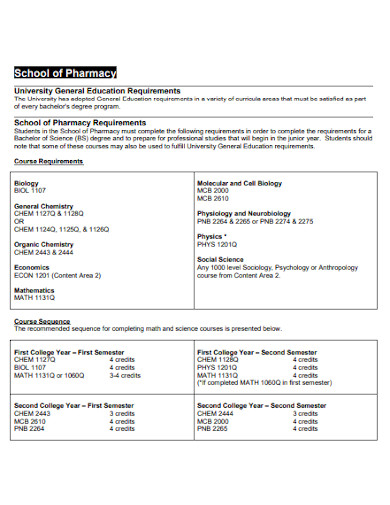
Size: 112 KB
3. Pharmacy School Application in PDF
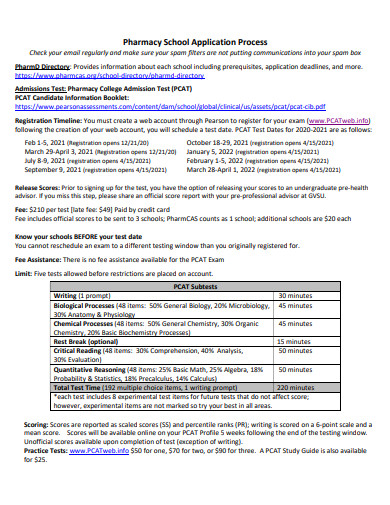
Size: 756 KB
4. Medical School Personal Statement
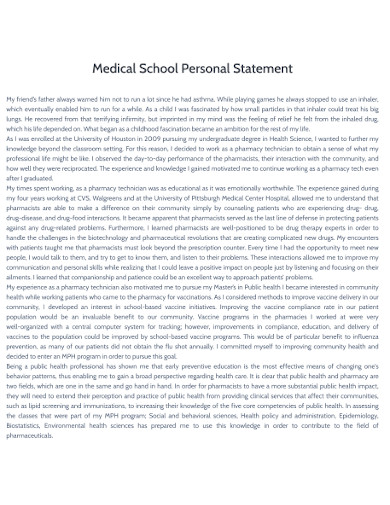
5. Pharmacy School Personal Statement Example
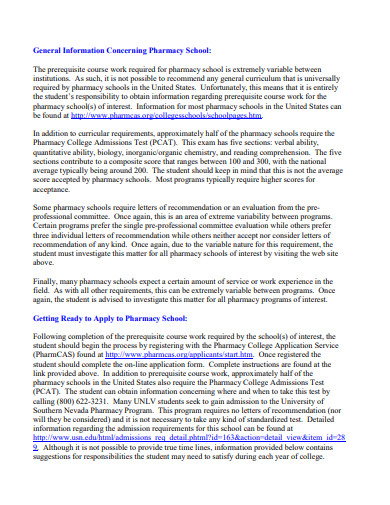
Size: 34 KB
6. Basic Pharmacy School Personal Statement
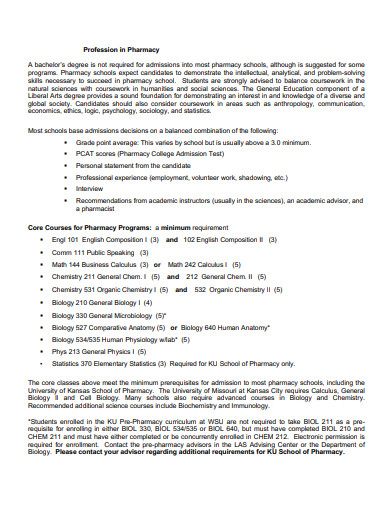
Size: 40 KB
What Is a Pharmacy School Personal Statement?
A pharmacy school personal statement is a kind of essay that a student whether an undergraduate or a postgraduate is asked to write about. This is the type of requirement that a lot of medical schools or schools in general ask their student applicants to write. The pharmacy school personal statement consists of the following: a short introductory statement that is mostly about who you are and the course you are taking; the body which states the reason why are you taking the course or what made you choose it; and lastly, the conclusion which would be an explanation of why they should be adding you to the list of students taking the same course. The personal statement, as the term suggests, is made to explain to the committee your purpose.
How to Write a Pharmacy School Personal Statement?
When you hear the word personal and statement, you would immediately think of an essay, which is not wrong. You are supposed to be writing an essay about why you are taking the course and how it affects you personally. But when is personal writing too personal? What can you do to make it more professional but at the same time touching the personal side? Here are tips to get you started on that.
1. Ask Yourself What You Want Them to Know About You
Brainstorming and drafting are some things that people often take for granted. What they don’t realize is how helpful that step is as well. The best way to begin is to always think about what you want to talk about. Give the committee something that they may want to read. Give them something about you.
2. Add Some Personal Experience to Your Personal Statement
To make a good personal statement and a good first impression, add some short personal experiences. These personal experiences would give the committee an overview of why you chose the occupation you are planning to pursue as well as it would give them a good chance to get to know you through it.
3. Avoid Being Too Personal and Too Boring
However, just because this is considered a personal statement does not necessarily mean that you are going to be too personal or very personal. There is a very good line between sharing experiences as a personal reason for your statement and making it too much. In addition to that, make your personal statement something to read. Avoid being too boring or too dull.
4. Make Your Statement Clear and Concise
Just as writing an essay or a report, your statement should also follow the rule to be clear and concise. Never assume that the committee would be able to understand or follow through with what you are saying if it does not make any sense. Make your statement clear. If you cannot understand what you plan to write, you should at least know that the next person would not either.
5. Avoid Erasures as Much as Possible
Avoiding too many erasures would seem like an impossible task. However, it is really not as daunting or impossible as it sounds. This is why when you are able to draft your work first, you get to see through the mistakes and the erasures and be able to avoid them. Your final output should at least have little to no erasures and little to no mistakes.
What is a pharmacy school personal statement?
A pharmacy school personal statement is a kind of essay that a student taking up the course is asked to write.
What is it about?
The personal statement consists of the reasons, purpose, and explanation as to why the student should be accepted into the program.
How long should a personal statement be?
A single page long is the required length, along with 700 words in total. Above that is still acceptable but the committee often expects their applicants to write only a page and 700 words maximum.
A lot of students are required to write something about themselves. This is what a personal statement does. It gives the student an opportunity to talk about why they should be accepted into the program. To make your statement stand out, share a story or an experience you had that made you want to take up the course. The more sincere and true it is, the more likely you would be believed. Avoid writing a story that is not true as a lot of members of the committee can tell between a real and genuine story over something being fabricated.
AI Generator
Text prompt
- Instructive
- Professional
10 Examples of Public speaking
20 Examples of Gas lighting
- Pharmacy School
Winning Pharmacy Residency Statement Examples
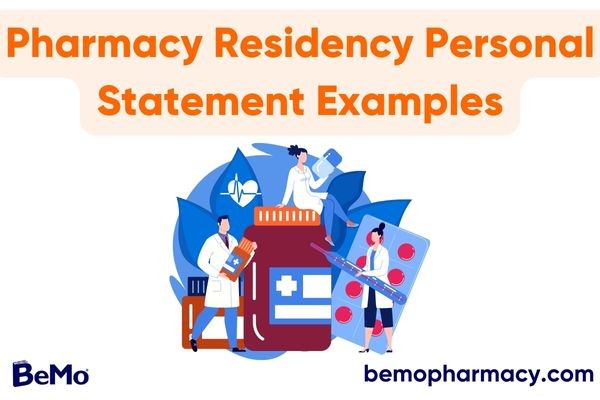
If you’re in pharmacy school and planning you’re future, you know that you don’t need a residency or pharmacy residency personal statement examples to be a licensed pharmacist. That’s one advantage pharmacy school grads have over medical school grads, who need to do a minimum one year of residency before they can take the USMLE Step 3 . But you also know that doing one or two post-graduate years of a pharmacy residency will increase your chances of getting into other sectors of the industry among many more benefits, which we’ll explore later. If you are thinking about doing a pharmacy residency, we have what you need. You will need to submit an online application, but don’t use your old pharmacy school personal statement . We’ll help you write a new one and explain a little about how to apply to pharmacy residency programs in the US and Canada.
>> Want us to help you get accepted? Schedule a free strategy call here . <<
Article Contents 15 min read
Should you pursue a pharmacy residency.
Maybe you have your mind set on going into retail pharmacy; there's nothing wrong with that, but there are some things you should know about the retail pharmacy landscape. Over 60% of the pharmacists practicing in the US work in retail pharmacies as part of giant chains like Walgreens and CVS.
However, as big box stores and other retail chains introduce pharmacies into their stores, small, independent pharmacies, are being pushed out. What’s more, many of these giant retail pharmacies are closing stores. If that weren’t enough, labor statistics predict sluggish job growth in the retail pharmacy sector over the next five years, so there’s that too.
We say all this to encourage you to think about the value of a pharmacy residency, and how applying to any number of the pharmacy residency programs in the US or Canada can give you a head-start on your career. One study noted that a pharmacy residency leads to the development of research, leadership and clinical skills in those who complete the program, far beyond what is taught in pharmacy school.
Want to know how to avoid residency application red flags? Watch this video:
Types of Pharmacy Residencies
If you’re not sure about what type of pharmacy you want to go into, we’ll explain a little about the three main ones in both the US and Canada, which are related to the variety of roles a pharmacist can fill. They include:
- Academic-based residencies (at universities and medical schools)
- Hospital-based residencies
- Industry-based residencies
But one unique aspect of pharmacy residencies is that you can go directly into the private sector and learn within the environment you’ll most likely be working at after you finish, so you don’t have to go learning how to find a job after residency .
You can do these residencies at an accredited pharmacy school or university that confers the entry-level PharmD degree. According to the American Society of Health-System Pharmacists (ASHP), there are close to 2400 different residency programs in the US. In Canada, there are much fewer; only 30 programs in total offered by schools such as the University of Toronto , the University of British Columbia , Dalhousie University, and Laval University.
Academic-based residency programs are good places to do residencies because you have a variety of specializations, a diverse teaching curriculum, and a lot of research opportunities. So, even though we repeat it a lot, you need to research each program carefully to find one that matches your research interests and career goals. For example, the University of Toronto has two programs:
- Hospital Pharmacy Residency
- Industrial Pharmacy Residency
Hospital-Based Pharmacy Residency
A hospital-based pharmacy residency does for you what a family medicine residency and an internal medicine residency does for medical students: it puts you in the middle of a clinical environment where you have direct patient experience, the opportunity to train with exemplary faculty mentors, and the chance to be a part of or lead a healthcare team. This is the best choice for you, if you see yourself staying in healthcare, whether it be a hospital, clinic or some other medical environment.
Of course, every hospital-based residency will offer you different opportunities and clinical settings. The teaching curriculum can have a specific focus or have unique electives that you can choose based on your own goals and interests, which is why it bears repeating that you need to examine what each program offers to make sure it's right for you.
Industrial-Based Pharmacy Residency
This type of pharmacy residency is a good option if you are interested in research and being part of the development of new treatments and medications. But it involves so much more. An industry-based pharmacy residency gives you the chance to learn marketable skills that are specific to the global pharmaceutical industry, such as learning about international pharmaceutical markets, national regulatory frameworks and how to create new drugs according to these frameworks.
If you’ve made the decision to do a pharmacy residency (good choice, by the way), this will be a short run-down of how to apply, even though you may be familiar with the process.
Here is where the paths of pharmacy grads and med school grads converge, as students from pharmacy schools in the US and pharmacy schools in Canada must apply to pharmacy residency programs through centralized residency match services; the Pharmacy Online Residency Centralized Application Service ( PhORCAS ) in the US; the Pharmacy Residency Application and Matching Service ( PRAMS ) in Canada. However, you do not need PARMS to apply directly to academic-based programs; you can apply to directly to the school. PARMS is for hospital-based residencies.
These programs work much in the same way as other residency match services , such as ERAS and the NRMP in the US; and CaRMS in Canada. You gather your specific application materials for each service, choose your programs (academic, hospital, or industry) and send your application. You will be notified of your candidacy status by the institution you applied to and run the same gamut as a med school grad would to enter a residency: application, interview(s) (if you qualify), decision.
Here are some of the general pharmacy residency requirements for each country:
Canadian Pharmacy Residency Requirements
- Be registered with the Canadian Pharmacy Residency Board (CPRB)
- Have graduated from a pharmacy school program accredited by the Canadian Council for the Accreditation of Pharmacy Programs (CCAPP)
- Be a Canadian citizen or have legal permission to work and live in Canada
- Have a licence to practice pharmacy or be in the process of obtaining their licence with the PEBC Qualifying Examination – Part I Multiple-Choice Questions (MCQ) and Part II Objective Structured Clinical Examination (OSCE)
These are the base requirements, but each program, depending on the type of residency you want to enter, may have additional ones that applicants must meet, which can vary from:
- Being registered with the Canadian Society of Hospital Pharmacists
- Being a registered student with the university or institution offering the residency
- Never being expelled from any other Canadian residency program
US Pharmacy Residency Requirements
The residency system for graduates from pharmacy schools in the US has both general and program-specific requirements. The PhORCAS application service, which is administered by the American Society of Health-System Pharmacists (ASHP) functions similar to other residency match services in the US and organizes all residency applications to match them to the various residency programs offered throughout the country.
General Requirements
- Currently holding or in the process of receiving a licence (where, depends on program)
- Graduated from an ACPE-accredited pharmacy school
- Hold a PharmD degree
- Be a US citizen or have permanent resident status
To apply for a pharmacy residency through PhORCAS, you must submit the following:
- Personal information
- Academic history (pharmacy and undergraduate schools)
- Extracurriculars
- Residency CV
- Residency personal statement or residency letter of intent
- Rank order list
- Letters of recommendation
These are the main components of the PhORCAS application, but different residency programs will have their own requirements, so students need to ensure they meet all their programs requirements and submit any supplemental materials either through PhORCAS or to the program directly.
You will only need a pharmacy residency personal statement if you are applying to an academic or hospital-based residency. The industry-based residencies usually only ask you for a research proposal or letter of intent - some academic programs ask for a letter of intent as well - so we’ll show you examples of what to include in your personal statement for academic and hospital-based residencies.
You’ve probably written one or two personal statements in the past, and, as we hear from many of our students, it is not easy. While it may seem like a no-brainer to you on why you want to enter a residency, the goal is to articulate and communicate that desire in 600 words or less (PARMS personal statements must not exceed 600 words) in a professional and well-written statement.
Fortunately, both PhORCAS and PARMS offer you advice and guidelines about what to write, but here we’ll do something a little different. We’ll use the same strategies we used with BeMo students who applied to pharmacy residencies (and got in!) and break-down how to construct your own personal statement with your own experiences, words, and goals.
PhORCAS and PARMS suggest the following, which is good advice, but you need something more personalized and specific, which is what we’ll do with the proceeding pharmacy residency personal statement examples.
- What are you looking for most in a residency program?
- Why should we choose you?
- What are you goals and research interests?
- What do you hope to gain from our residency program?
These are the questions you have to answer, but how do you write it in a way that conveys your enthusiasm, knowledge, and writing skills? Keep reading to learn how to infuse paragraph with style and verve so you get into the residency of your choice.
Writing your Pharmacy Residency Personal Statement
All good personal statements tell a story. But great ones reveal a complex, multi-faceted, constantly evolving human being behind them who has experienced challenges in life, overcome them and has the potential to do great things.
However, a pharmacy residency personal statement has to show a little more. Depending on the type of pharmacist you want to be (industry or healthcare-based), you may have to adjust your statement to reflect the unique skill sets you have to excel in that particular industry sector.
If you are applying to an industry residency, you won’t have a lot of direct patient experience or any clinical rotations, so it makes no sense to talk about how you want to interact with patients. Instead, it is mostly your research capabilities, experiences in the lab, and project goals that will make you an attractive applicant to an industry-based residency.
If you are applying for a hospital-based residency, here is where you would highlight previous direct patient experiences, shadowing, cross-collaboration with various teams, and your past makes more sense to talk about here.
This is why we constantly tell our students to, “show, don’t tell”, as a simple reminder to let them know that showing what you did during the time leading up to a pharmacy residency (or whatever professional goal you are trying to achieve) and how you developed into the resilient, dedicated and passionate individual that you are matters more than reciting your resume or academic achievements.
Take these two opening paragraphs for a pharmacy residency personal statement:
Pharmacy Residency Personal Statement Example Opening #1
I am excited to apply for the Pharmacy Residency Program as it represents an invaluable opportunity for my professional development and growth. I am eager to further enhance my clinical skills, expand my knowledge base, and contribute to the field of pharmacy. Pharmacy residency programs provide a unique learning experience that goes beyond what is obtained during pharmacy school. The chance to work closely with experienced preceptors, engage in interdisciplinary collaborations, and rotate through various clinical settings is unparalleled.
Pharmacy Residency Personal Statement Example Opening #2
I can think of no greater fear-inducing event than struggling to breathe. I woke up like that one morning. I had the symptoms of a cold – coughing, sore throat, congestion – and my doctor had prescribed antibiotics. But the day after I started them, I woke up breathless. Fortunately, I was not alone. My partner called an ambulance, because I couldn’t speak. The paramedics came and gave me oxygen. With each complete breath, I calmed down. I was so soothed by the oxygen that I started to cry from how good it felt to breathe again.
Now, can you tell the differences between the two?
The first sample conveys no humanity and feels like the rote, lifeless copy written in a brochure. It gives no detail and says nothing important or new. But the second example grabs our attention right away by relating to us through a universal fear (not being able to breathe) and setting us up to find out what happens next.
The above samples are both fictional, but then the challenge becomes, what is something unique to you and your experience that you can talk about? Remember, it’s a “personal” statement, so don’t be afraid to talk about setbacks, failures, tragedies but always with an eye toward how that experience has prepared you for now.
To do this with a full example, we’ll first create an applicant profile. In this profile, we’ll give a short autobiographical sketch of the applicant, and then use that information in the provided pharmacy residency personal statement example. We’ll also address the statement to a real pharmacy residency program in either the US or Canada. When you read the statement, you’ll see bold text that explains how the information from the profile is being used, so you get an idea of how to do it on your own.
Every time I’ve seen someone brought back to life by Narcan, I think about the one life it did not save. Here you are not only relating the experience, but relating how it affected you. Remember to keep that cause-and-effect formula throughout your writing. You also want to build some mystery and reveal only a few details, but be selective. The more you withhold, the more your reader will want to continue. I first heard of naloxone in an intro to biochemistry class. My professor explained the chemistry of the drug, but also added a tragic aside: the drug’s creator, Dr. Jack Fishman, lost his step-son, Jonathan to an overdose, even though Narcan existed at the time, only, it was not readily available. You can usually wait until the second or third paragraph to mention something academic, but CAMH has a 300-word limit for its personal essay, so we are making an exception. But, again, remember that anything academic or professional you mention has to relate back to something personal, some change in you.
Hearing that was sobering. My professor said a story like that should motivate us to create drugs that would save lives, but to remember not to always expect miracles, even with a miracle drug like Narcan. I took that as a challenge to learn all I could about addiction, drug policy, harm reduction, the neuroscience behind chemical dependencies and the prevalence of co-occurring disorders, where addiction and mental illness meet. This is where you make the connection to your experience, and mention how learning this knowledge (whatever it may be) put you on the path that you are on now and what you did to show your commitment.
I did a six-month internship at the Ontario Harn Reduction Network and got the opportunity to meet and learn from Drug Culture Consultants who had lived with substance use problems. Hearing about all the obstacles they faced to getting Narcan or other treatment options made me realize that pharmaceutical companies and regulatory agencies alone should not be the ones deciding drug policy. They should collaborate with public health authorities and other non-profits who work directly with affected population groups who would benefit most. This section is another “stepping stone” to something you want to say about your goals and desires and what motivates you, but also demonstrates you have an informed opinion about an important issue. That’s what interests me about the CAMH; the advocacy on behalf of people with substance use and mental health disorders and all the research done here on their behalf. Here, at the end, is where you can connect your mission to the program’s and make your case for why you are a good fit for the program.
CAMH hosts one of the most revered pharmacogenetics research centers in Canada, which is an area of pharmacology I would like to explore further, as it holds promise to create new drugs to treat substance use and mental health disorders with medication made specifically for them . Given the opportunity, I am confident that I will be able to make a meaningful impact and contribute to CAMH's mission of transforming lives through leading-edge research, comprehensive care, and innovative treatments.
Applicant Profile #2
Name: Grace Chao
Education: Touro College of Pharmacy, PharmD
Grace was first interested in the tech sector, and majored in computer science. But she added biology as a minor in her second year because of the recommendation of a professor and has been interested in the intersection of medicine and information technology ever since. She went to pharmacy school in order to learn more about the medication that she, as someone with ADHD, takes on a regular basis and whether information technology can improve medication delivery systems in major hospitals.
Residency Program: Mount Sinai Brooklyn
Pharmacy Residency Personal Statement Example #2
I was only fourteen when I was diagnosed with attention-deficit/hyperactivity disorder (ADHD) and it made me scared. Here you are being vulnerable and open about a personal issue, which is exactly the kind of thing personal statements are for; don’t be afraid to open up and mention an obstacle, setback or challenge, so long as you talk about its effects on you (cause-effect). I didn’t know what it was and my doctor’s explanations were confusing. It made me scared because I loved school and I was afraid that I might not be able to keep going to school the way I was used to. My doctor prescribed medication and it was when our pharmacist, Mr. Chee, talked to me about my ADHD that I finally felt better.
Mr. Chee took the time to explain the effects of the prescribed medication and patiently discussed the potential side effects, along with strategies to mitigate them. This compassionate approach is something that I never forgot and it proved pivotal later on in my career, when I was deciding what to do after I graduated. The “inciting incident” can come in any time in your narrative, but the way you talk about it can vary. You can be explicit and say “this person made me decide to be a pharmacist” or in a more implied way, like here.
There are various requirements for each program, as is standard for residency applications. The PhORCAS system in the US is similar to the AMCAS medical school application service, in that it sets the word limit to 600 words. In Canada, as evidenced by the Center for Addiction and Mental Health, each program has its own letter and length requirements.
It depends on the program. Some may ask for a personal statement, while others ask for a statement of interest more focused on your research history and goals within the residency.
There are dozens of different residencies for pharmacy school graduates that are reflective of all the versatility of the pharmacy profession. In the US, there are many more opportunities, given there are so many pharmacy schools in the US, so applicants can apply to a community clinic residency, outpatient or drug rehabilitation center residency, or a traditional hospital-based residency, to name a few.
It depends on your interests and where you see yourself in ten years. Do you want to create new medications? Do you want to continue researching? Do you want to go practice at a public hospital? Do you want to enter your own private practice? These are the questions you have to answer to choose which residency is best for you.
Again, each program has its own requirements, but they typically ask you to explain why you want to enter this program, and this specific residency. Talk about your experiences in pharmacy school and how they helped influence your decision to pursue a residency, as it is an optional move and not required to receive a pharmacy license.
Do not write your entire life story or dwell too long on certain experiences. Keep the narrative moving forward and do not use unprofessional language or talk negatively of others, including other healthcare professions.
There is objective best when it comes to a pharmacy, or any specialty, residency program. The “best” program for you is one that coincides with your research interests, professional goals, and educational background.
No. AI cannot write in detail about your experiences, your emotions, and what you’ve done to prepare yourself for this residency. An AI-generated personal statement is easy to spot because it will generate a generic, incoherent repetitive mess that will surely get you rejected before the rest of your application is viewed.
Want more free tips? Subscribe to our channels for more free and useful content!
Apple Podcasts
Like our blog? Write for us ! >>
Have a question ask our admissions experts below and we'll answer your questions, get started now.
Talk to one of our admissions experts
Our site uses cookies. By using our website, you agree with our cookie policy .
FREE Training Webinar:
How to make your residency application stand out, (and avoid the top 5 reasons most applicants don't match their top choice program).
V. I. Lenin
Speech delivered at a meeting of the, moscow soviet of workers’ and red army deputies, march 6, 1920.
Delivered: 6 March, 1920 First Published: 1921 in Verbatim Reports of the Plenary Sessions of the Moscow Soviet of Workers’, Peasants’ and Red Army Deputies, Moscow; Published according to the book Source: Lenin’s Collected Works , 4th English Edition, Progress Publishers, Moscow, 1965, Volume 30, page 410-416 Translated: George Hanna Transcription/HTML Markup: David Walters & Robert Cymbala Copyleft: V. I. Lenin Internet Archive (www.marx.org) 2002. Permission is granted to copy and/or distribute this document under the terms of the GNU Free Documentation License
Comrades, I very much regret that there is little probability of my being able to discharge the duties hinted at by the Chairman in reference to my membership of the Moscow Soviet. [1] I am nevertheless very glad to have the opportunity of greeting the new Moscow Soviet. Permit me to say a few words about the tasks which, owing to the general situation in the country, fall particularly to the lot of the Moscow workers, and first and foremost of the Moscow Soviet.
Comrades, it seems there is every hope that we shall, in the near future, emerge completely victorious from the war which was forced upon us by the landowners and capitalists of Russia in alliance with the capitalists of the whole world. I have just received a telegram from a member of the Revolutionary Military Council of the Caucasian Front, the last remaining front of any importance. This telegram states that the resistance of the enemy has been broken in all directions (applause), so that now that we have finished with the Kolchak front and the Archangel front, the day is apparently not far off when the Denikin front, too, will be completely eliminated. But, comrades, no matter how greatly the results of the Civil War and the international situation may favour us, and even though the imperialist powers are obviously on the eve of a complete break-down, and all their attempts to unite anybody at all for a war against us have ended in failure—no matter how favourable this situation may be, it must be said that the danger, even the foreign danger, is not yet over. Attempts are still being made, especially by imperialist France, to incite Poland to make war on Russia. You all know, of course, from the press, from the decisions of the Central Executive Committee, and from all the statements made at the Cossack Congress and many other congresses, that the Soviet Republic, on its part, has done all it could to prevent this war, that we have proposed peace to the Polish nation not only officially but in the most friendly way, and have most solemnly rec-ognised the independence of the Polish state, and have made the most positive declarations to this effect. From the military standpoint, we have done everything we could to prevent the Polish landowners and capitalists from carrying out their designs—perhaps not so much their own designs as those of imperialist France, who stands behind their back and to whom they are up to their ears in debt. We have done everything we could to prevent these capitalists and landowners from carrying out their design of inciting the Polish nation to make war on Russia. But although we have done everything we could, future action does not depend upon us. Even the Polish landowners and capitalists themselves do not know what they will do tomorrow. The internal situation in Poland is so grave that they may embark on such a dubious venture because of the obvious danger to their class position, because they feel their end approaching. Consequently, although we have won many victories, we have no guarantee at all that we are secure against foreign attack, and we must be on our guard, we must preserve, develop and strengthen our military pre-paredness, so as to accomplish the task that confronts the working class. If, in spite of all our efforts, the Polish imperialists, supported by France, embark on a war against Russia, if they launch their military venture, they must receive, and will receive, such a rebuff that their fragile capitalism and imperialism will fail to pieces.
We do not conceal from ourselves, especially from the Moscow and other Russian workers, that fresh effort and new and gigantic sacrifices are now demanded of us, which will be all the more severe because we are just now at the end of a winter—February and March—that has broughta new aggravation of want, hunger and suffering owing to the ruined state of our railway system. Arid I must tell you that the war on the bloody front, the civil war directed against the imperialists, is to all appearances coming to an end, and that anyway the enemy can offer no serious menace to us since the attempts of the Entente to launch a general war against us have suffered decisive defeat; the war on the bloodless front, however, still continues and will continue for a long time to come. For the more we leave the military danger behind us the more we are faced with the tasks of internal development; and these have to be carried out by the working class, which has taken upon itself the mission of leading the working masses. These tasks—the restoration of a ruined country and a ruined economy, and the organisation of a socialist society—cannot be accomplished without a war on the bloodless front. That is what the advanced workers, who are now forming the new Moscow Soviet, must impress most firmly on their minds, for the Moscow workers have always been a model, and for some time to come must continue to be a model, which will be followed by the workers of other cities.
We must remember that we are grappling with the task of making a socialist revolution in a country where peasants form the greater part of the population. We have now been joined by the peasant masses of Siberia, where the peasants have surpluses of grain, where they have been corrupted by capitalism, cling to the old freedom of trade, and consider it their sacred right—in this respect they are being led astray by the Mensheviks and Socialist-Revolutionaries (that is their sad lot—there is nothing else for them to do)—they consider it their sacred right to practise freedom of trade in grain surpluses, believing that they can retain this right. It does not matter to them that this supposed civil equality implies the exploitation of the hungry by the well-fed; for peasants who have grain surpluses and refuse to let the starving have them are putting into effect the principles of capitalist relations. They are people who, after having been exploited for hundreds of years, have now become their own masters for the first time, and are in a position, owing to their grain surpluses, to enslave the workers, who, as a result of the collapse of industry, are unable to give any equivalent in return for the grain. For this reason our attitude towards these petty-bourgeois property-owners, towards the small profiteers, who number millions and who think that because they possess surpluses of grain the farther we go the more they will make, and that the worse the famine the more profitable it will be for those who have grain—our attitude towards them must he one of war. This we say bluntly, and this is the basis of the dicta-torship of the proletariat, which openly declares to the work-er and peasant masses: “The working peasant is our ally, our friend and brother; but when the peasant acts as a prop-erty-owner holding a surplus of grain not required by his household, and acts towards us as a property-owner, as a well-fed man towards a hungry man, such a peasant is our enemy, and we will fight him with the utmost determina-tion, the utmost ruthlessness.” Victory over the small prop-erty-owners, over the small profiteers, is no easy matter. They cannot be eliminated in one year, many years will be required; it will take organised resistance, stubborn and steadfast work, step by step over a long period of time -it will take an incessant day-to-day struggle, which it is particularly difficult to wage and in which the profiteering peasant is very often victorious over the worker. But we will fight on the bloodless front so that the hungry may secure from the well-fed the surpluses they possess, despite all obstacles and despite the desire of the Socialist-Revolutionaries and Mensheviks to introduce freedom of trade and leave these surpluses in the possession of the well-fed.
We have done a great deal of work during the past two years. We have enlisted the peasant and worker masses in this work, and have everywhere been able to secure what we needed. At a time when the whiteguard officers, the former tsarist officers, were fighting us on the side of our enemies, we enlisted tens and hundreds of these experts in our work, which helped to remake them. They helped us do our work, in conjunction with our commissars. They themselves learned from us how the work should be done, and in return gave us the benefit of their technical knowledge. And it was only with their help that the Red Army was able to win the victories it did. We must now divert all this work into another channel. It must be work of a peaceful character; we must devote everything to the work on the labour front. We must direct our former property-owners, who were our enemies. We must mobilise all who are capable of working and compel them to work with us. We must at all costs wipe from the face of the earth the last traces of the policy o the Mensheviks and Socialist-Revolutionaries—the policy which talks of personal freedom, etc.—because it would doom us to starvation. This attitude must be adopted in all our work. The advanced section of the proletariat is assuming the leadership of the rest of the population, and it says: “We must get you to understand our ideas fully and to put them into effect, just as we got you to come over more and more to our side.”
The first task that confronts us here is to clean up Moscow, to put an end to the filth and state of neglect into which it has sunk. We must do this so as to set an exam-ple to the whole country, where this filth, which brings with it epidemics and disease, is becoming more and more prevalent. We must set this example here, in Moscow, an example such as Moscow has set many times before.
We must bear in mind that we are faced with the task of restoring the transport system. In the spring we must intro-duce control by the worker masses. We must effect it in respect of those market gardeners in the vicinity of Moscow who are taking advantage of the fact that there are starving fellow-beings around them to pocket millions. The fact that any rich market gardener can squeeze untold profits out of his poor neighbours is an atrocious injustice, which we cannot tolerate.
What must we do? Specialists must give us the benefit of their knowledge so that we may carry our ideas into effect. The class which has just elected the new Moscow Soviet must tackle this work, and carry it out more practi-cally and in greater detail than hitherto.
We know that the proletariat is not very large numeri-cally; but we also know that the Petrograd workers, who were in the front ranks of the Red Army, gave us their best forces whenever we needed them, gave them for the fight against the enemy in greater numbers than we thought possible. We have said that Petrograd, Moscow and Ivanovo-Voznesensk have given us a vast number of people. But that is not enough; they must give us all we need. We have to utilise all the bourgeois specialists who accumulated knowledge in the past and who must pay with this knowledge now. It is with the help of these people that we must do our work; it is with their help that we must conquer all we need-conquer, and create our own militant contingents of workers who will learn from them and direct them, and who will always turn to the broad masses of the workers to explain this experience. That is what the Moscow Soviet, as one of the most important and one of the biggest of the proletarian Soviets, must accomplish at all costs. The fifteen hundred members of the Moscow Soviet, plus the alternate members, constitute an apparatus through which you can draw upon the masses and constantly enlist them, inexperienced though they are, in the work of administering the state.
The worker and peasant masses who have to build up our entire state must start by organising state control. You will obtain this apparatus from among the worker and peas-ant masses, from among the young workers and peasants who have been fired as never before with the independent desire, the readiness and determination to set about the work of administering the state themselves. We have learned from the experiences of the war and shall promote thousands of people who have passed through the school of the Soviets and are capable of governing the state. You must recruit the most diffident and undeveloped, the most timid of the workers for the workers’ inspection and promote them. Let them progress in this work. When they have seen how the workers’ inspection participates in state affairs, let them gradually proceed from the simple duties they are able to carry out—at first only as onlookers—to more important functions of state. You will secure a flow of assistants from the widest sources who will take upon themselves the burden of government, who will come to lend a hand and to work. We need tens of thousands of new advanced workers. Turn for support to the non-party workers and peasants, turn to them, for our Party must remain a narrow party, surrounded as it is by enemies on all sides. At a time when hostile elements are trying by every method of warfare, deceit and provocation to cling to us and to take advantage of the fact that membership of a government party offers certain privileges, we must act in contact with the non-party people. The laws on the Workers’ and Peasants’ Inspection grant the right to enlist non-party workers and peasants and their conferences in the work of government. This apparatus is one of the means whereby we can increase the number of workers and peasants who will help us to achieve victory on the internal front in a few years. For a long time this victory will not be as simply, decisively and clearly apparent as the victory on the war front. This victory demands vigilance and effort, arid you can ensure it by carrying out the job of development of Moscow and its environs and helping in the general work of restoring the transport system, of restoring that general economic organi-sation which will help us to get rid of the direct and indi-rect influence of the profiteers and to vanquish the old traditions of capitalism. We should not grudge a few years for this. Even if we had these conditions, such social re-forms as these would be without parallel, and here to set ourselves tasks designed only for a short period of time would be a great mistake.
Allow me to conclude by expressing the hope and assurance that the new Moscow Soviet, bearing in mind all the experience gained by its predecessor in the course of the Civil War, will draw new forces from among the youth and will tackle the affairs of economic development with all the energy, firmness and persistence with which we tackled military affairs, and so gain victories which, if not as brilliant, will be more solid and substantial.
[1] On February 16, 1920, Lenin was elected deputy to the Moscaw Soviet from State Confectionery Factory No. 3 (new the Bolshevik Factory) and from the workers and employees of Khovrine Station, Nikolayevskaya (new Oktyabrskaya) Railway. On February 20 his rights as member of the Moscow Soviet were confirmed by the cre-dentials commission and he was issued with Deputy’s Identification Card No. 1. Ever since then at every convocation of the Moscow City Soviet Deputy’s identification Card No. 1 has been issued in Lenin’s name.
Collected Works Volume 30 Collected Works Table of Contents Lenin Works Archive

IMAGES
VIDEO
COMMENTS
Updated: Jan 01, 2024. Pharmacy school personal statement examples demonstrate that pharmacy school applications require many different documents to adequately assess you as a potential candidate. In addition to looking at your CV, transcripts, letters of recommendation, and any other required materials, most pharmacy programs ask you to submit ...
As part of your brainstorming, look at successful personal statements. Websites like Studential and ApplyToUni can give you a good idea of what spelled success for past applicants. Or, if you know anyone who went to pharmacy school already, you can ask them for their best tips. 2. Outline and Draft.
The goal of your personal statement is to showcase why you would be the ideal pharmacy student and why your traits/qualities reflect those of a pharmacist. Be as authentic as possible when detailing why you want to be part of the PharmD program. GPA and PCAT scores can only get you so far. Your personal statement is a chance for you to stand ...
Include only pharmacy-related experiences. 6. Avoid plagiarism. Committee members can always see through plagiarized works, so avoid this at all costs. This will only destroy your credibility in the field. 7. Avoid controversial topics. The personal statement is not a discussion ground for questionable topics.
Pharmacology Personal Statement Example 1. I am of Haitian descent and my country is one known for its harsh living conditions. There is a constant struggle for survival and poverty is an endemic burden. Despite numerous advances in technology, Haiti has remained the least-developed country in the Western Hemisphere...
Pharmacy school personal statement examples. Personal statements are one of the most important components of your application. They are your only opportunity to show the admissions committee that you are more than your GPA and PCAT score. This is your chance to stand out from the crowd. The quality of your essay will be determined by how much ...
Take any constructive feedback with a positive attitude and work on bettering your final copy. 10. Display Confidence. It requires immense sincerity and self-reflection to write a pharmacy school personal statement. For your readers, to relate better to your essay, you must also consider their point of view.
Make it real - tell a story - engage the reader. Make it flow. Explain why you are passionate about your career choice. Support claims with examples. Demonstrate your values. Use formal writing - no contractions. Include long--term goals. Have other (smart) people read/critique essays. There are many smart people in Career Services: http ...
Pharmacy Personal Statement Prompts. Prompt 1: Tell us about yourself (Kings University London) Many universities use a very vague prompt that just instructs you to talk about yourself. As Kingston University London puts it, "You are the main topic of this essay.". This is a great, easy prompt to get.
Writing the Perfect Pharmacy Personal Statement: Expert Tips. Crafting a compelling pharmacy school personal statement is crucial to making a lasting impression on the admissions committee. Your personal statement is a powerful tool to showcase your passion for pharmacy and demonstrate how your background and achievements align with this career ...
Here are some practical tips to keep in mind when writing your pharmacy school personal statement: Start early: Give yourself plenty of time to write a strong personal statement. This isn't something that can be rushed, so start thinking about it well before the application deadline. Be specific: Don't just say that you want to become a ...
246 courses. Visit Website. Browse our range of Pharmacy personal statement examples. Gain inspiration & make sure you're on the right track when writing your own personal statement.
PTCAS (Physical Therapy): "Reflect on a meaningful experience in your life and share how that experience influenced your personal growth, such as your attitudes or perceptions." - 4,500 characters PharmCAS (Pharmacy): "Your Personal Essay should address why you selected pharmacy as a career; how the Doctor of Pharmacy degree relates to your immediate and long-term professional goals.
Step 4: Write your personal statement. Begin by summarising your suitability for the role. Make sure to write from the first-person viewpoint. Outline your qualifications and experience, followed by your relevant skills. Be sure to emphasize your enthusiasm for the field of pharmacy and the role you are applying for.
When you are writing your pharmacy school personal statement introduction, you can run afoul of any number of obstacles. From writer's block to ineffective writing, this could be one of the more treacherous aspects to pharmacy school planning.With so much to accomplish in so little space, you will have a lot to take care of in your introduction.
PERSONAL STATEMENT EXAMPLES Pharmacy personal statements . Discover personal statement examples written by students accepted onto pharmacy and related courses. Read through the examples to help shape your own personal statement. ... MPharm Pharmacy B230 . Throughout my school life, I have particularly enjoyed the sciences. ... Recommended Course.
The pharmacy school personal statement consists of the following: a short introductory statement that is mostly about who you are and the course you are taking; the body which states the reason why are you taking the course or what made you choose it; and lastly, the conclusion which would be an explanation of why they should be adding you to ...
As part of your application, you will need to complete a personal statement. Some attributes that make a good candidate for pharmacy include: Motivation to study pharmacy and genuine interest in the profession. Effective communication, including reading, writing, listening and speaking. Ability to work in a team. Resilience. Personal organisation.
If you're in pharmacy school and planning you're future, you know that you don't need a residency or pharmacy residency personal statement examples to be a licensed pharmacist. That's one advantage pharmacy school grads have over medical school grads, who need to do a minimum one year of residency before they can take the USMLE Step 3.But you also know that doing one or two post ...
MSMU is located at Devichye Pole, a medical campus, in Moscow. [6] The university was ranked #651 in the world by QS World University Rankings in 2021, #983 in Best Global Universities by U.S. News & World Report in 2022, and #1,001 in THE World University Rankings - Times Higher Education in 2021. The head of First Moscow State Medical ...
First United Methodist Church (1904), S. Adams at E. 3rd St. Moscow (/ ˈ m ɒ s k oʊ / MOS-cow) is a city and the county seat of Latah County, Idaho.Located in the North Central region of the state along the border with Washington, it had a population of 25,435 at the 2020 census. Moscow is the home of the University of Idaho, the state's land-grant institution and primary research university.
March 6, 1920. Delivered: 6 March, 1920. First Published: 1921 in Verbatim Reports of the Plenary Sessions of the Moscow Soviet of Workers', Peasants' and Red Army Deputies, Moscow; Published according to the book. Source: Lenin's Collected Works, 4th English Edition, Progress Publishers, Moscow, 1965, Volume 30, page 410-416.
University entrance. Pirogov Russian National Research Medical University (formerly known as Russian State Medical University or RSMU) is a medical higher education institution in Moscow, Russia founded in 1906. It is fully accredited and recognized by Russia's Ministry of Education and Science and is under the authority of the Ministry of ...